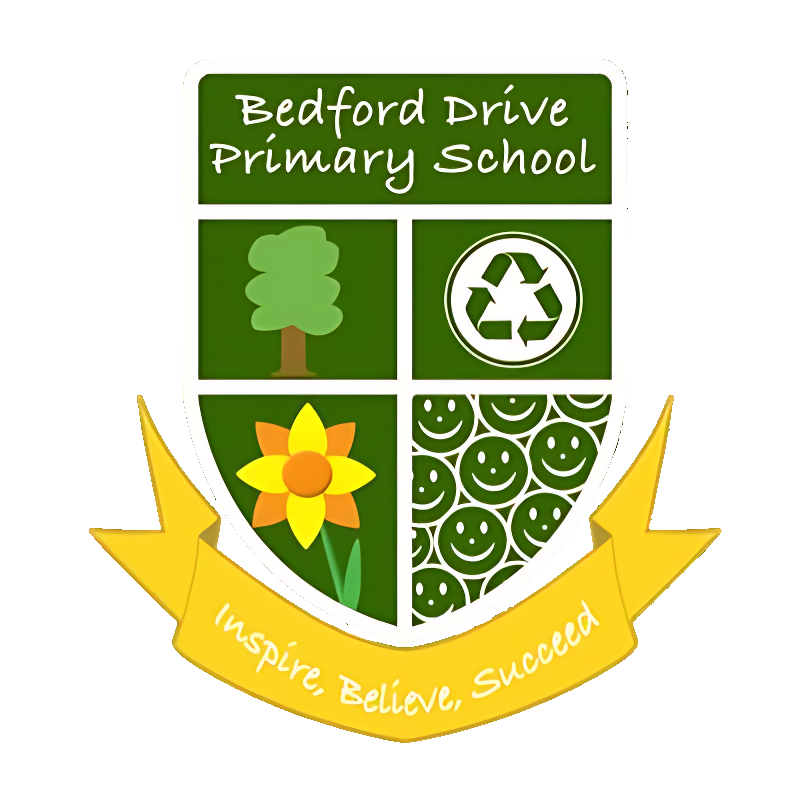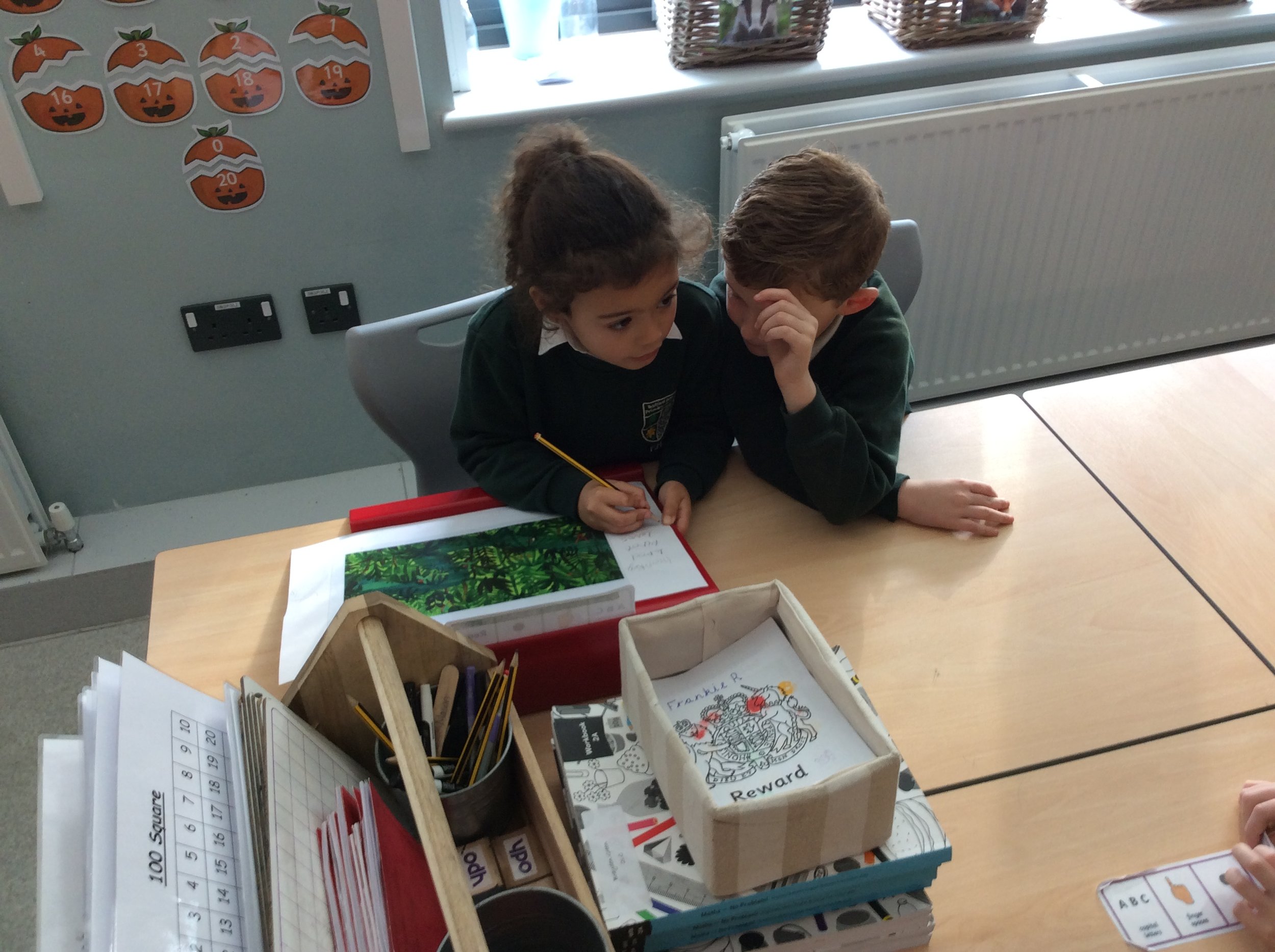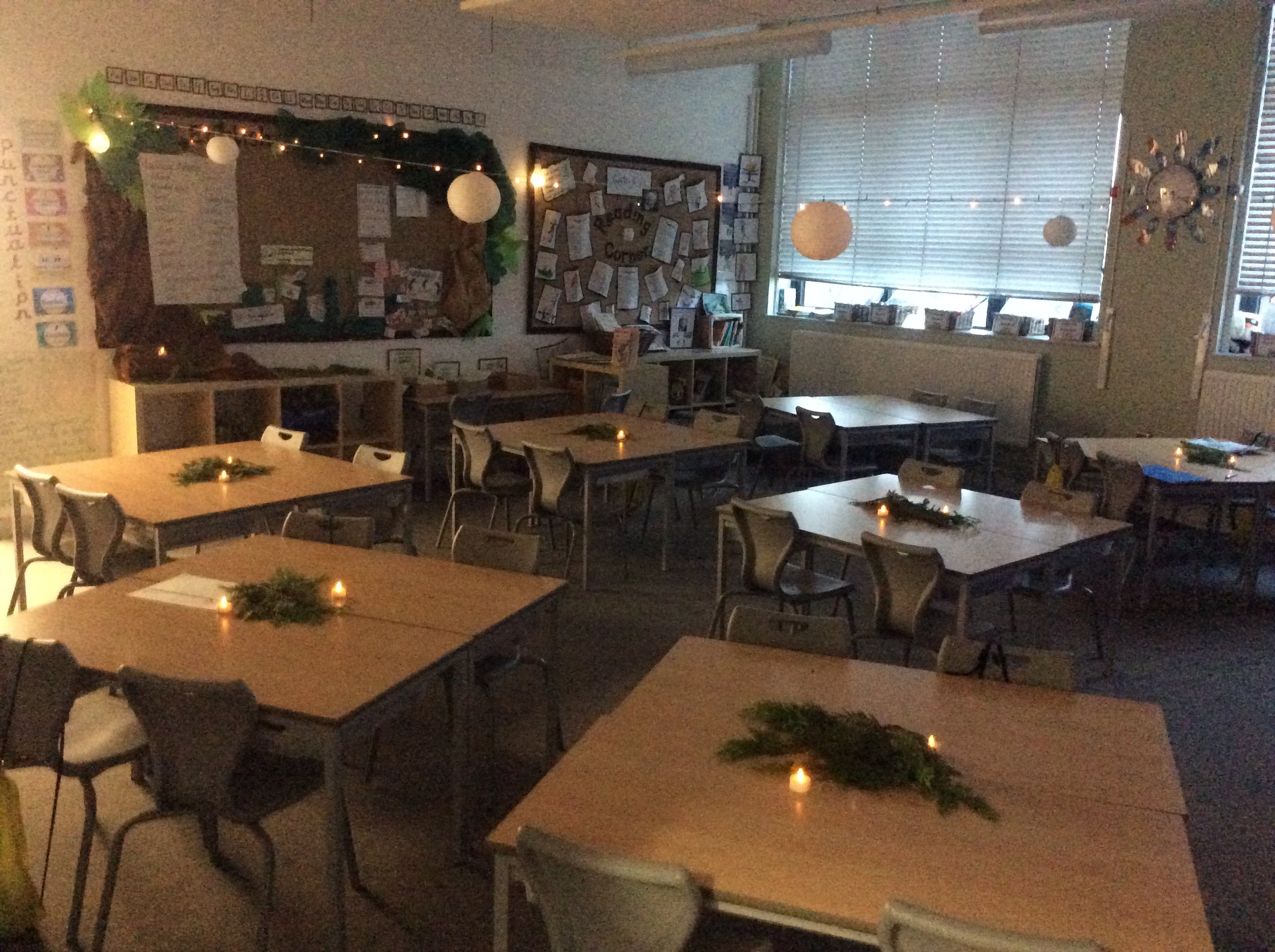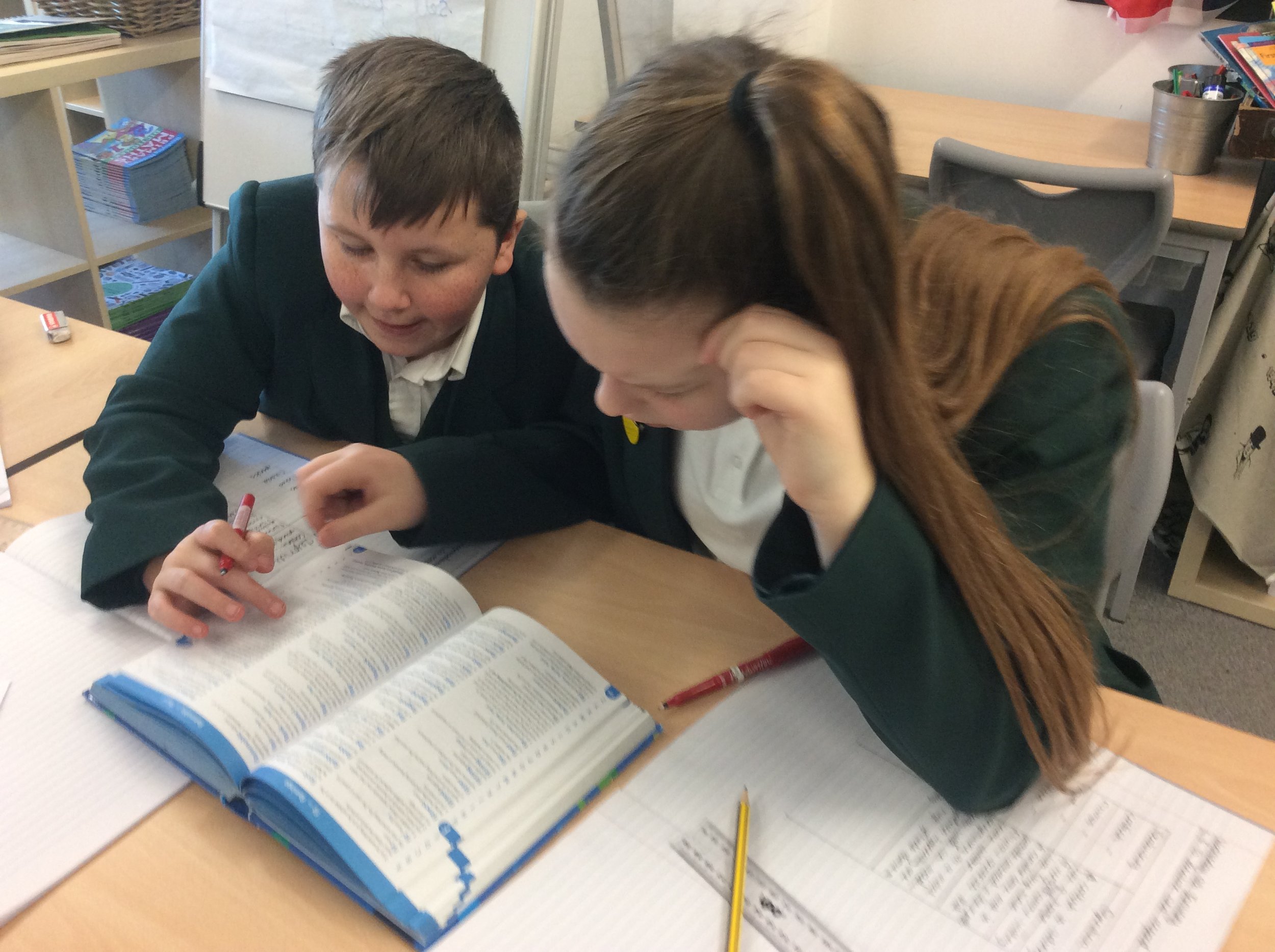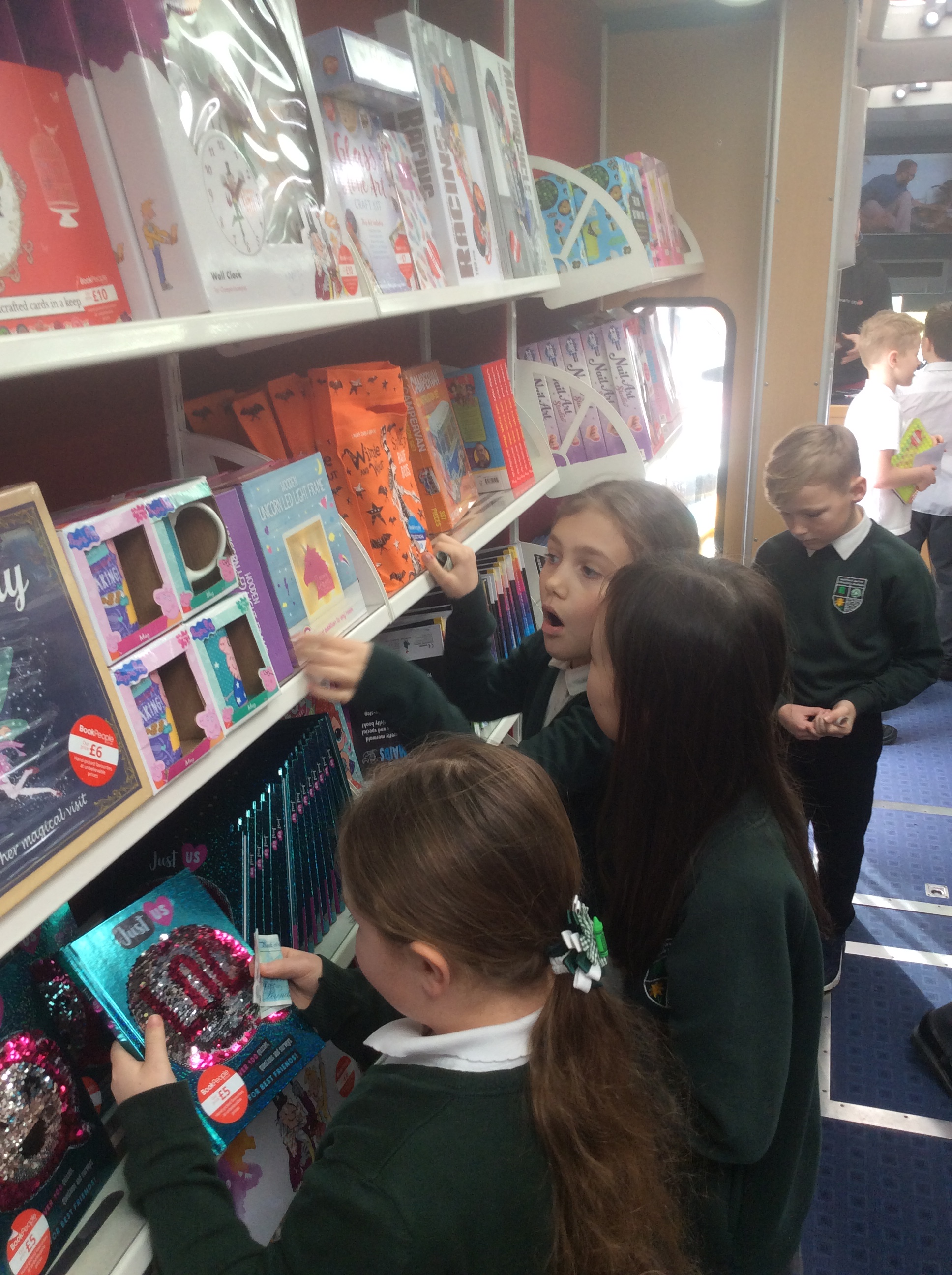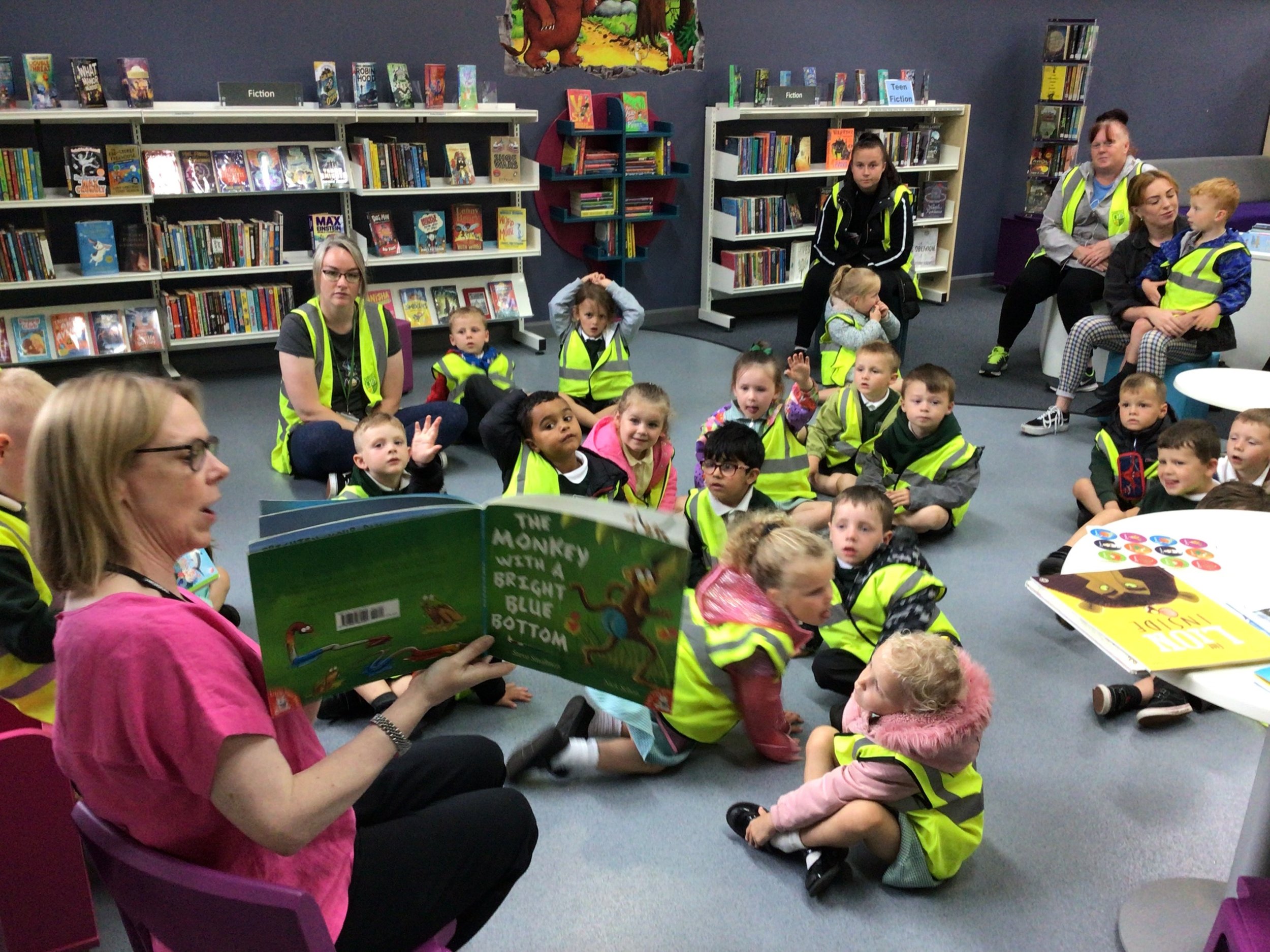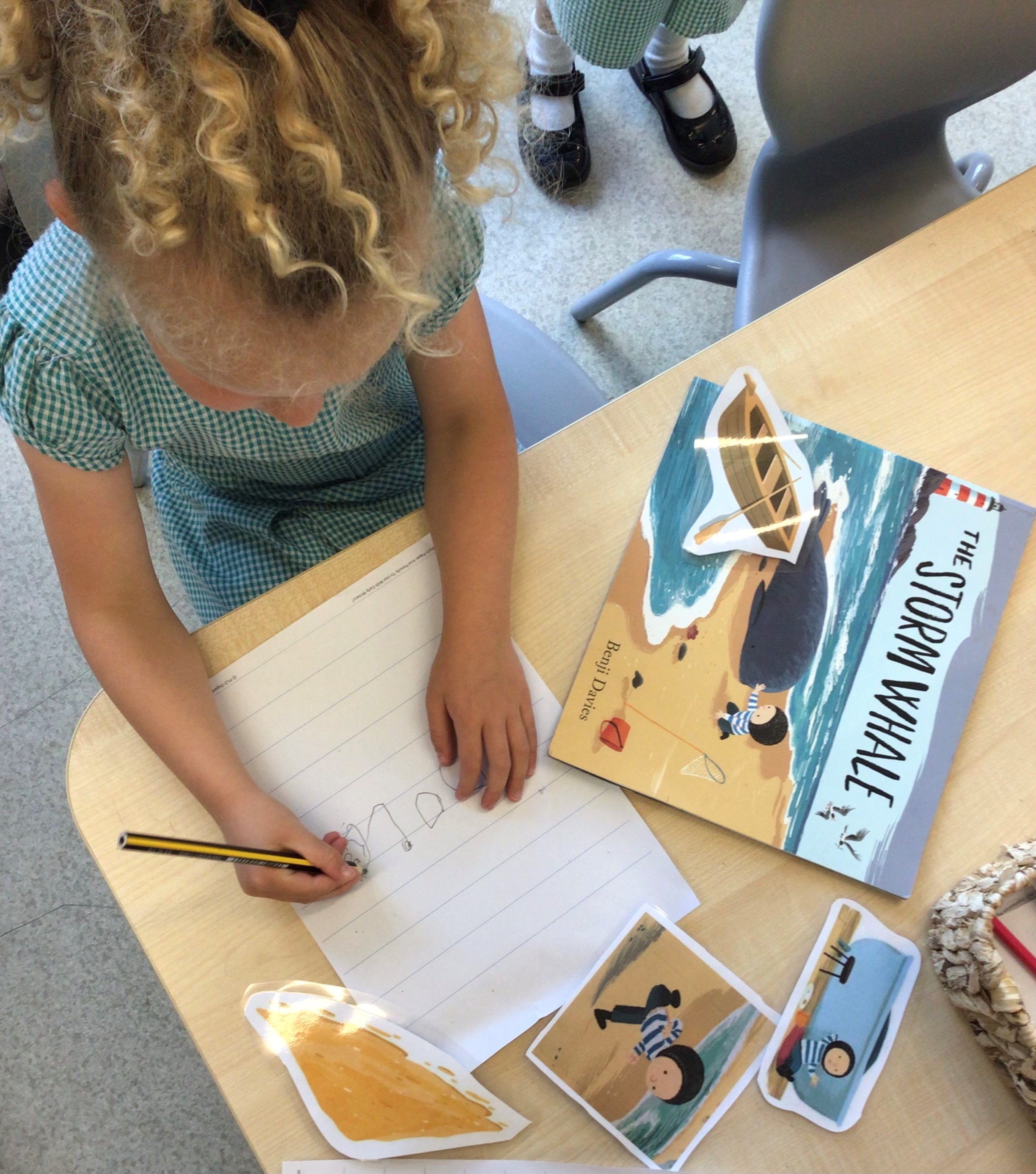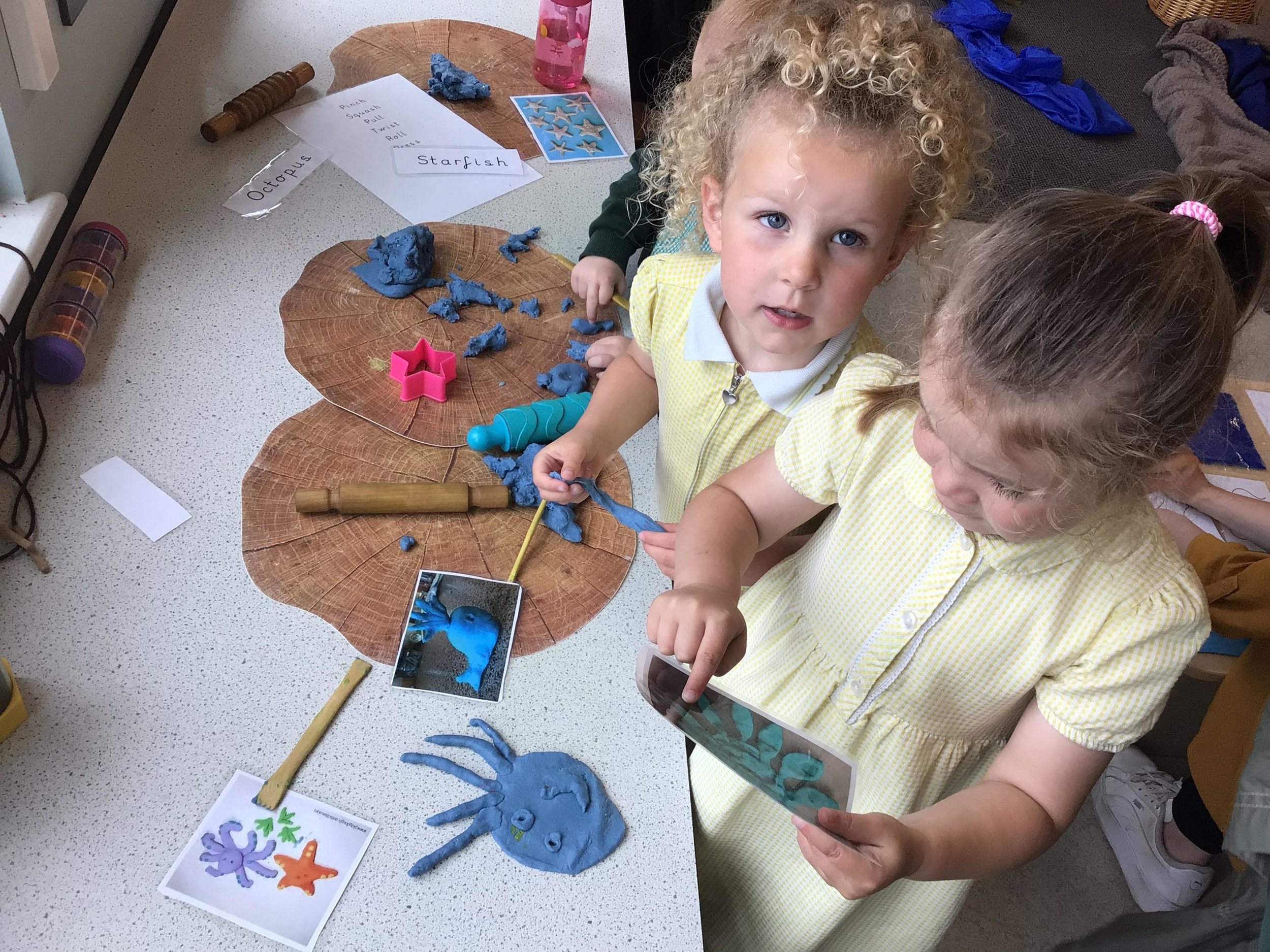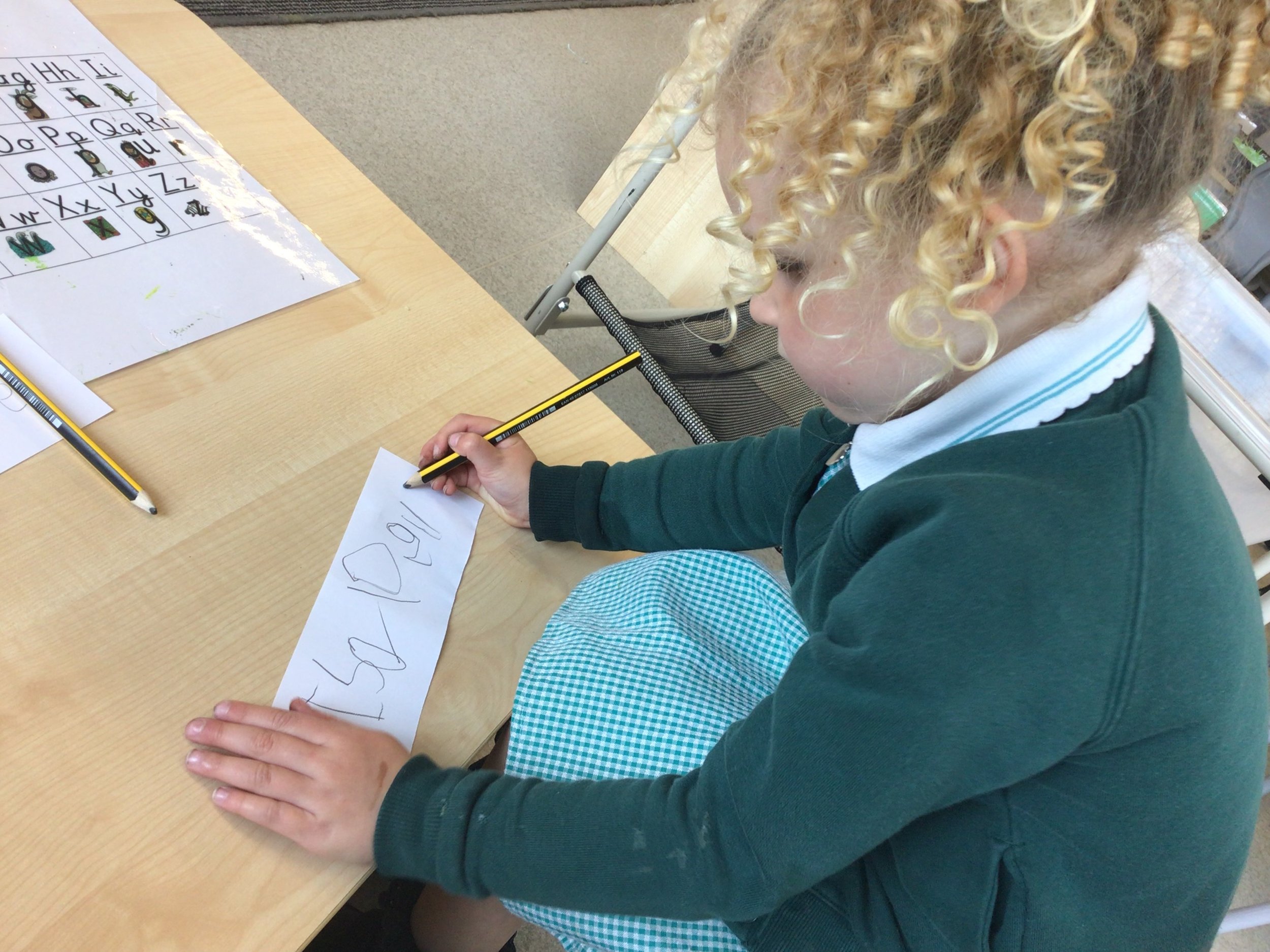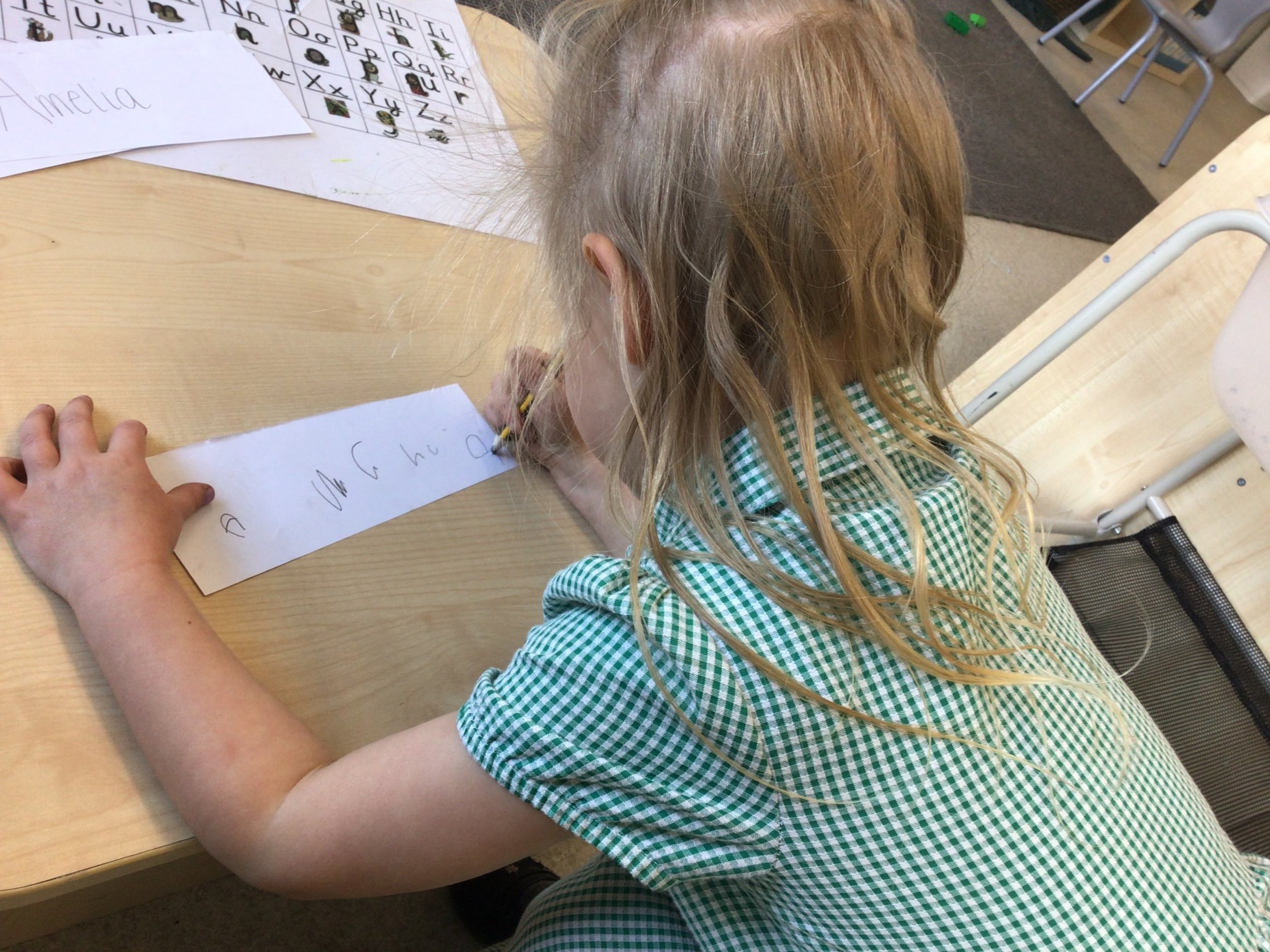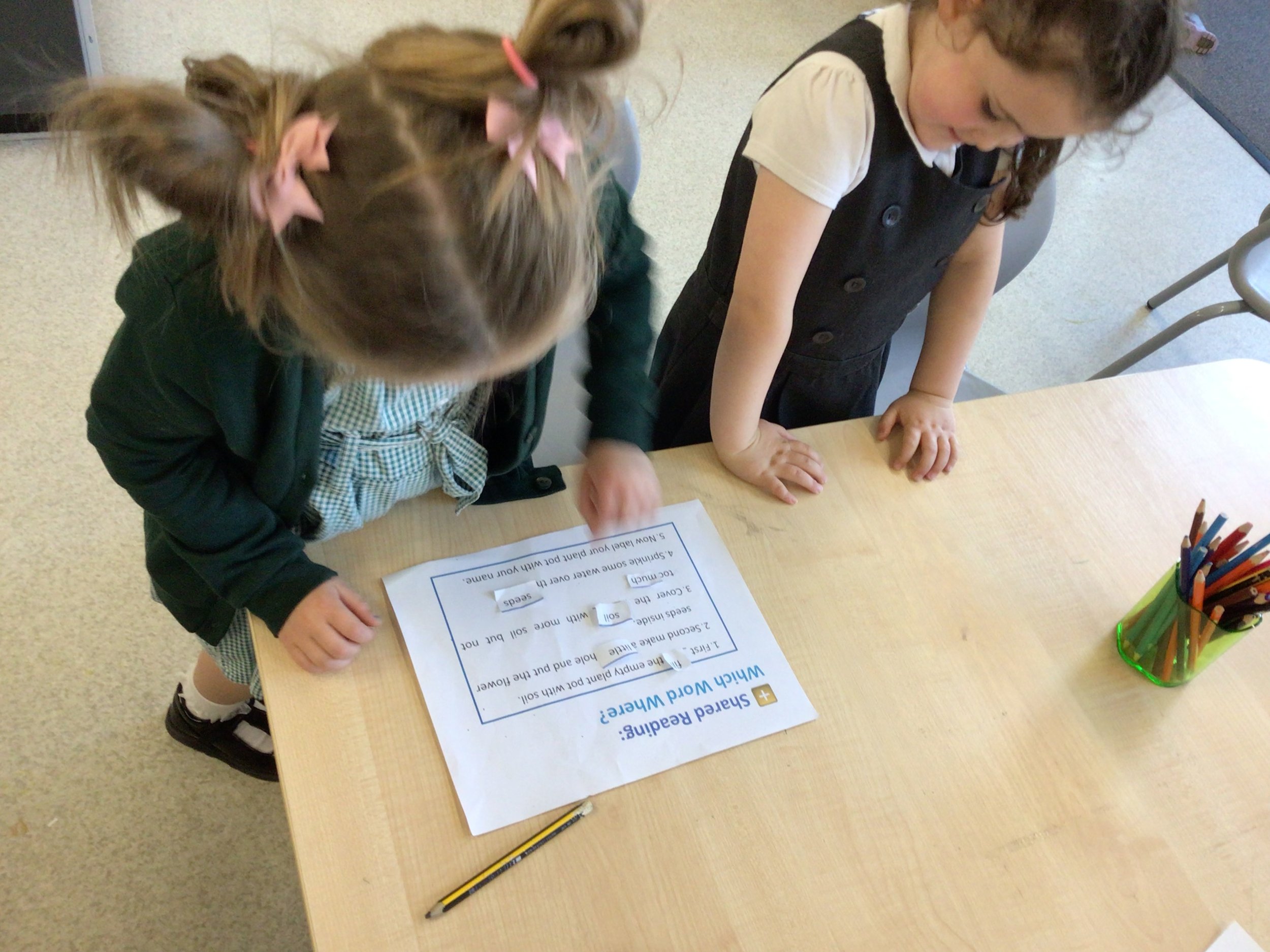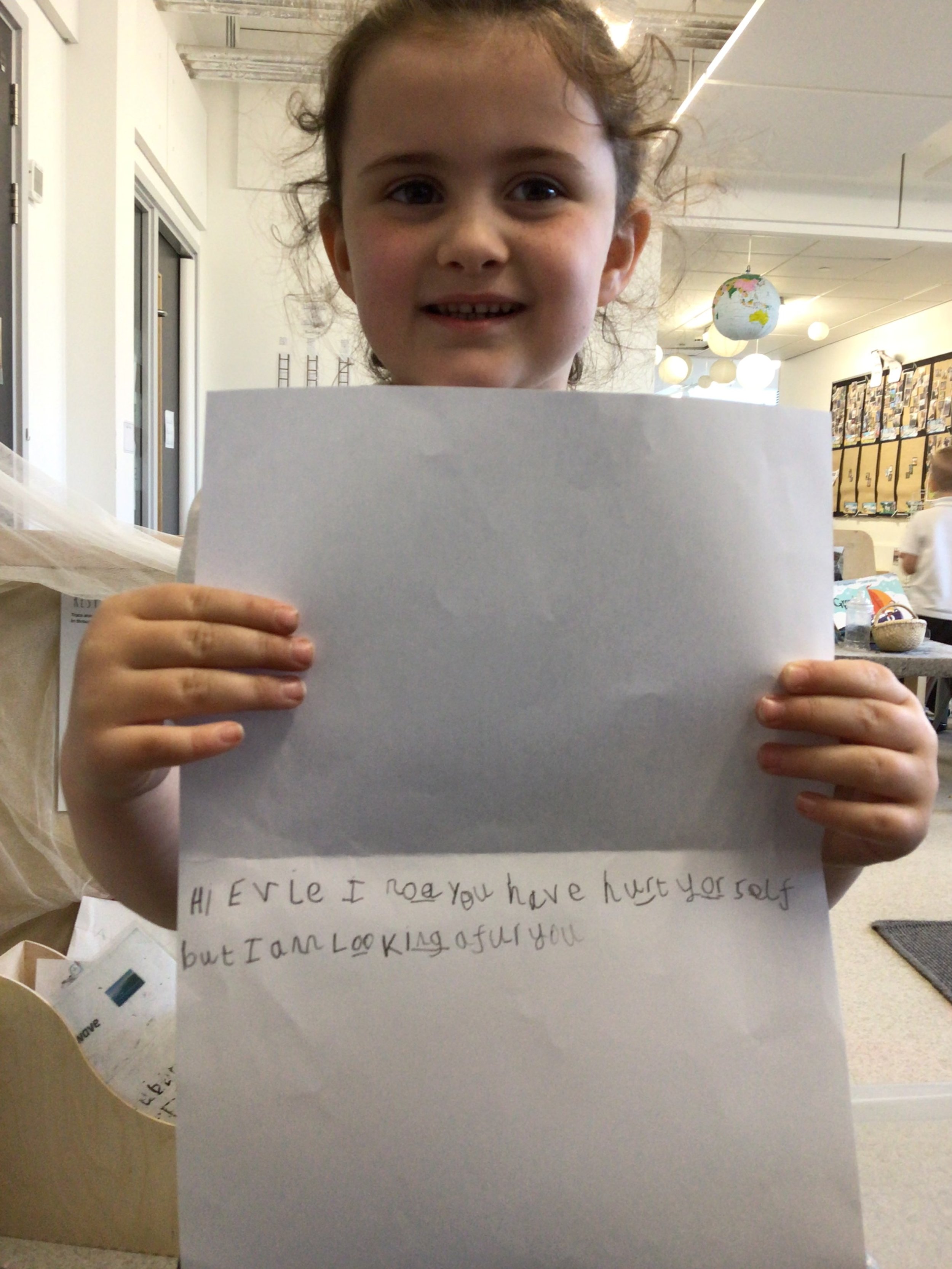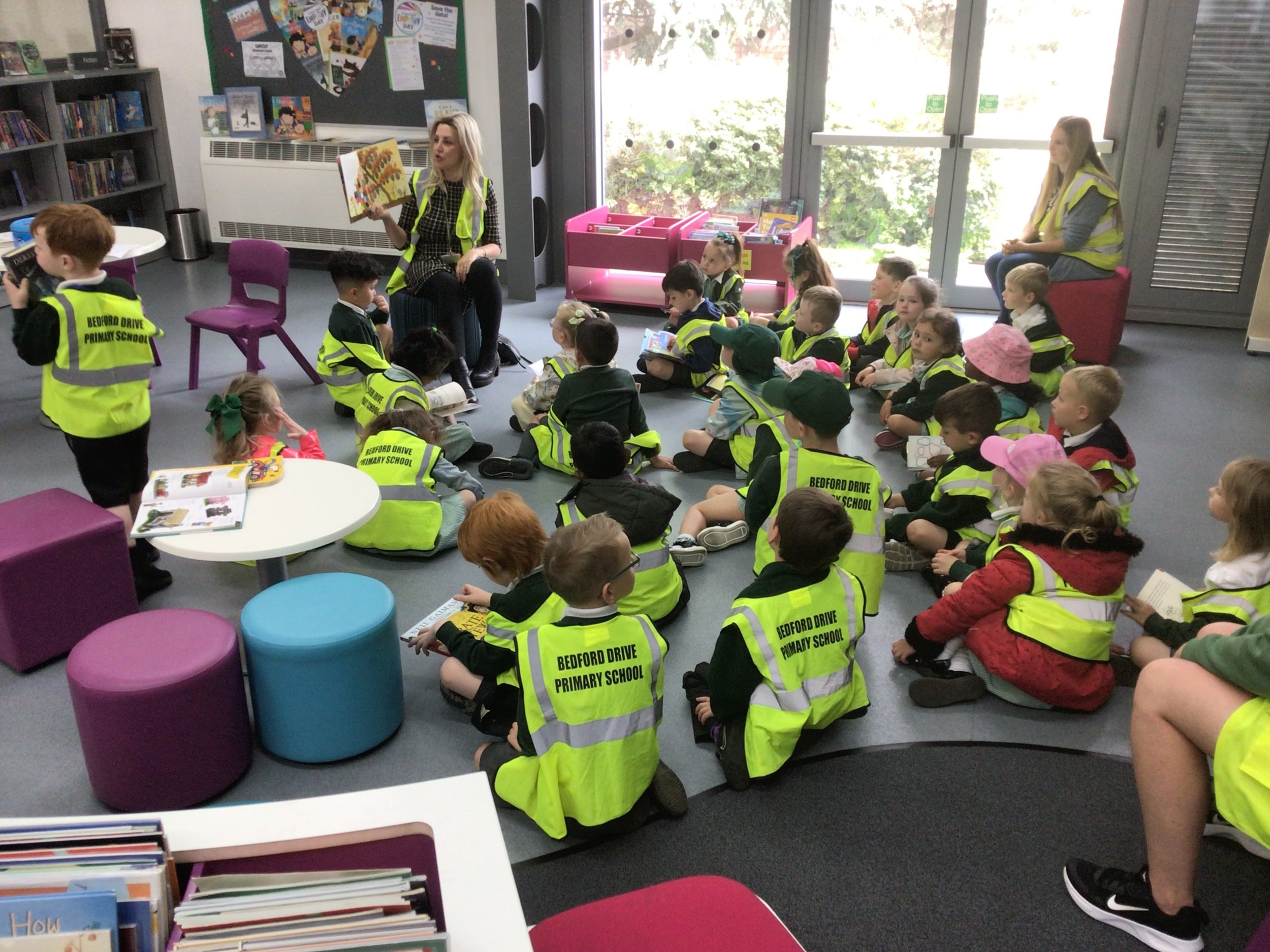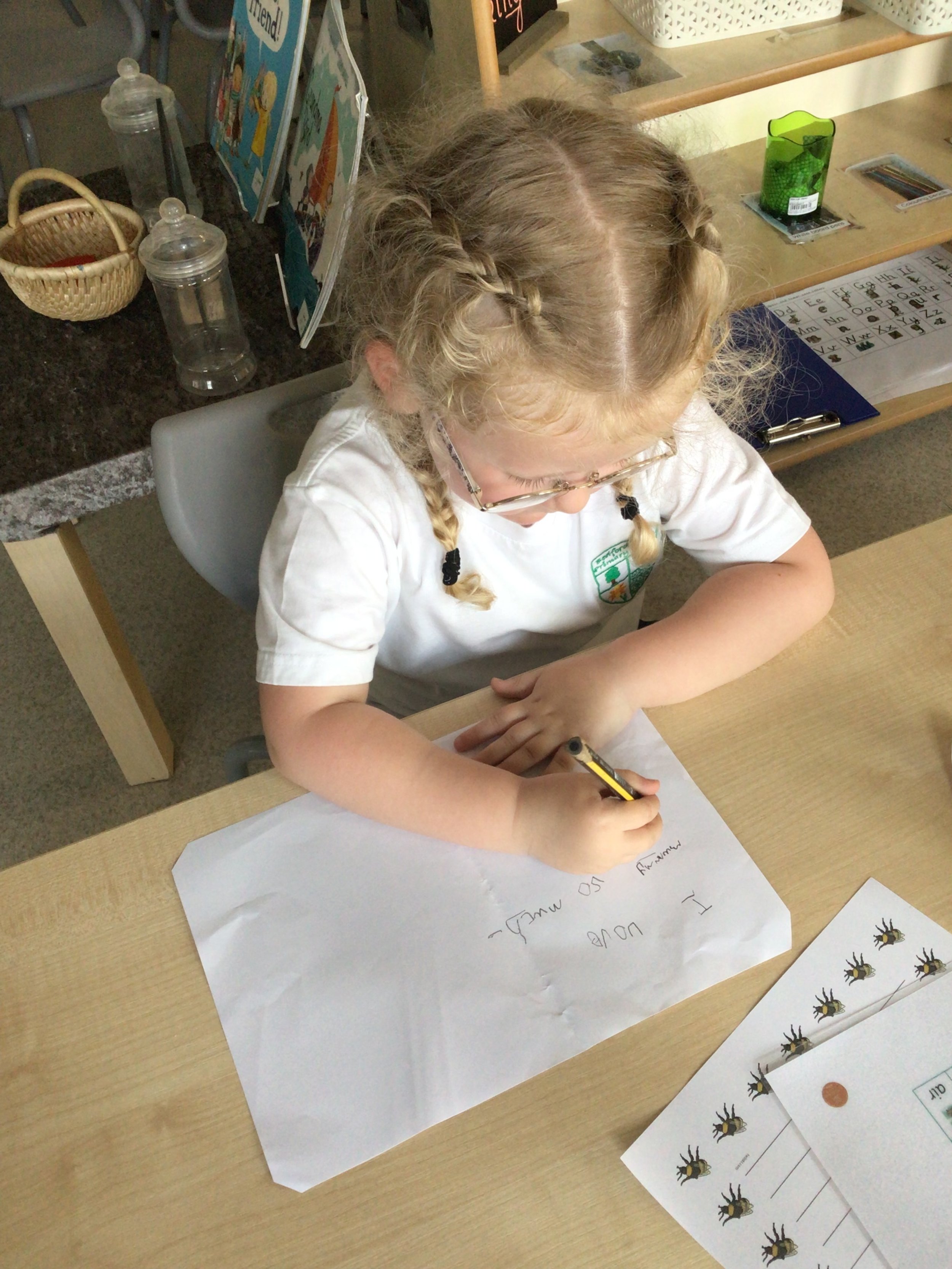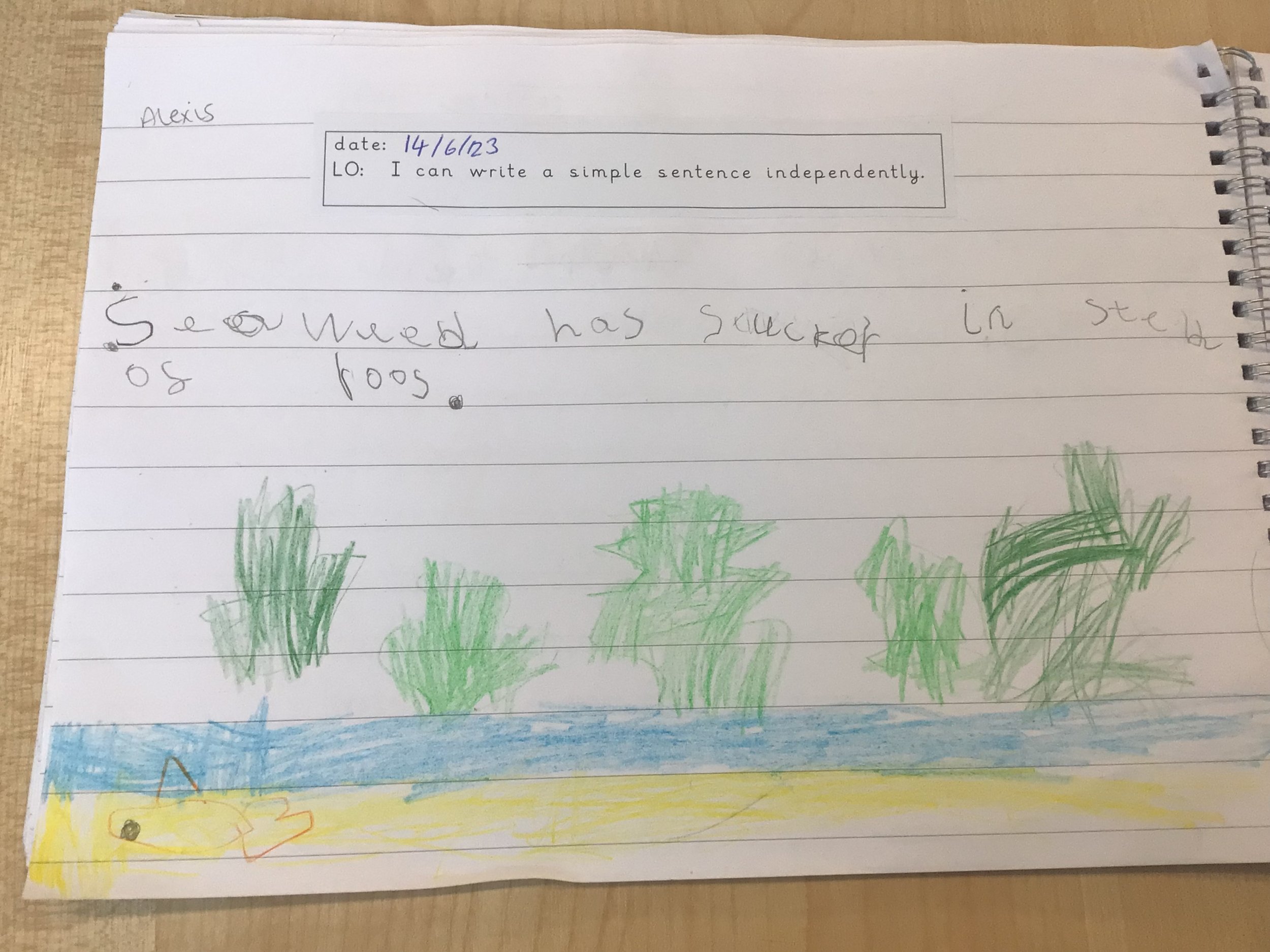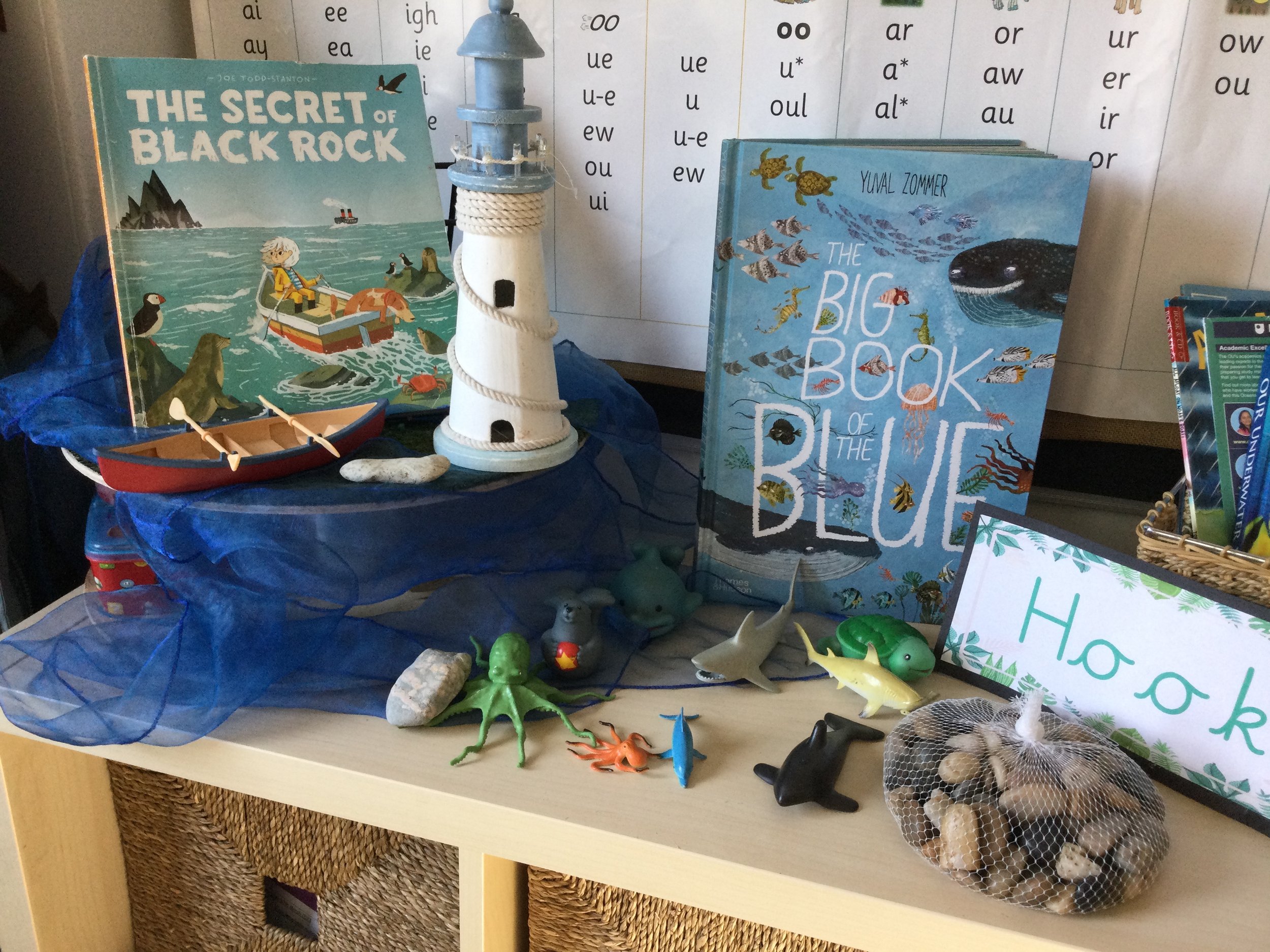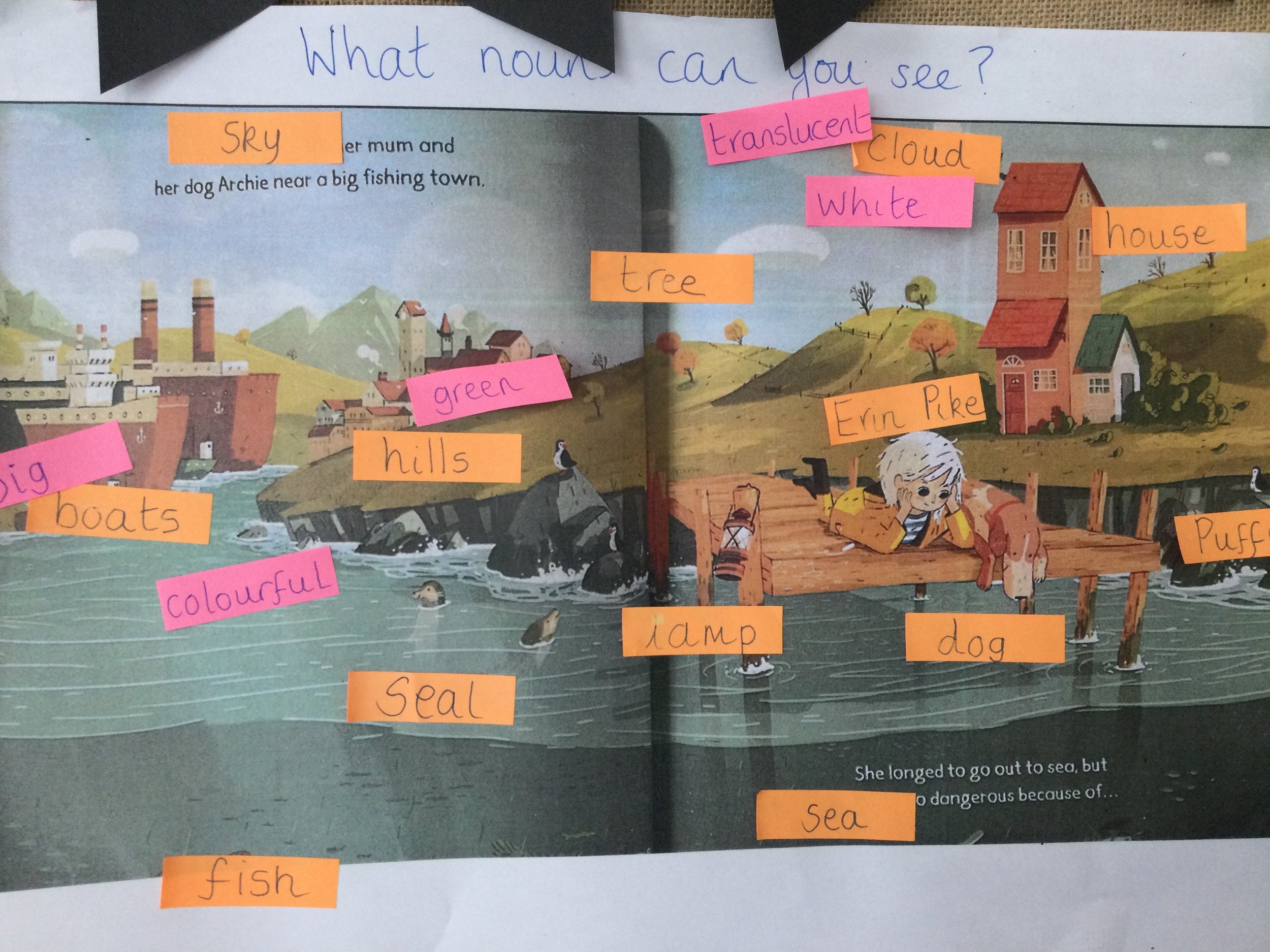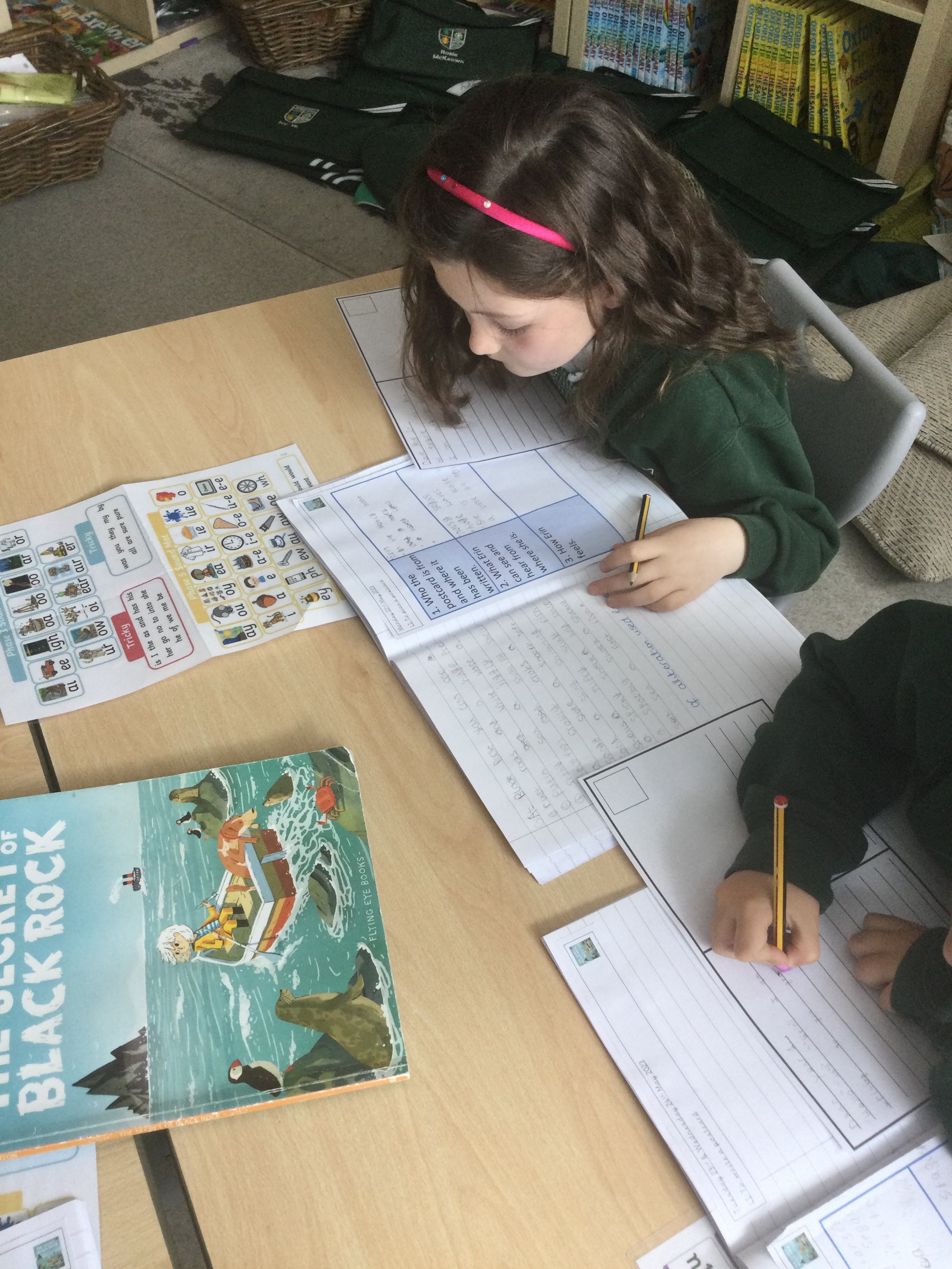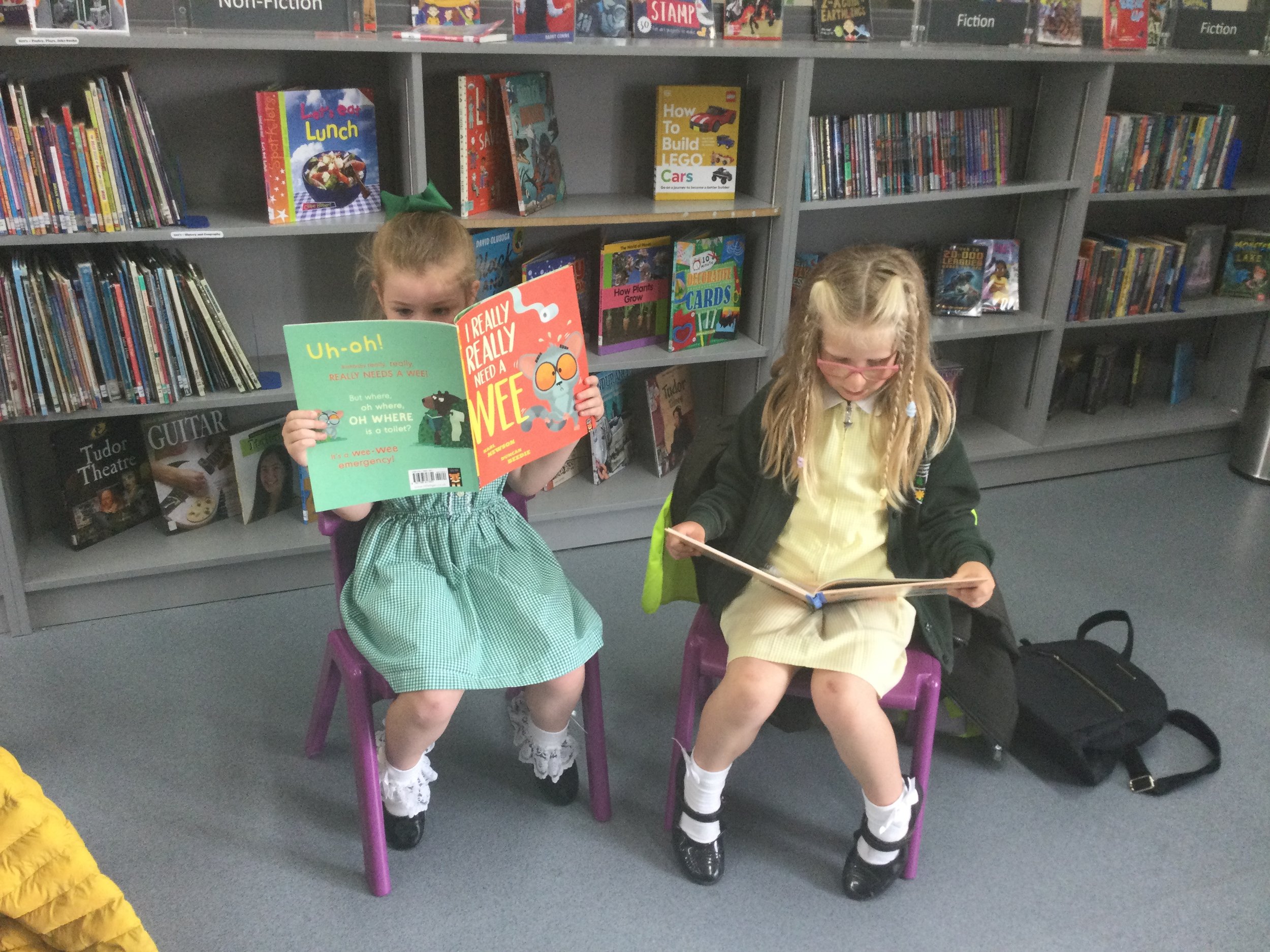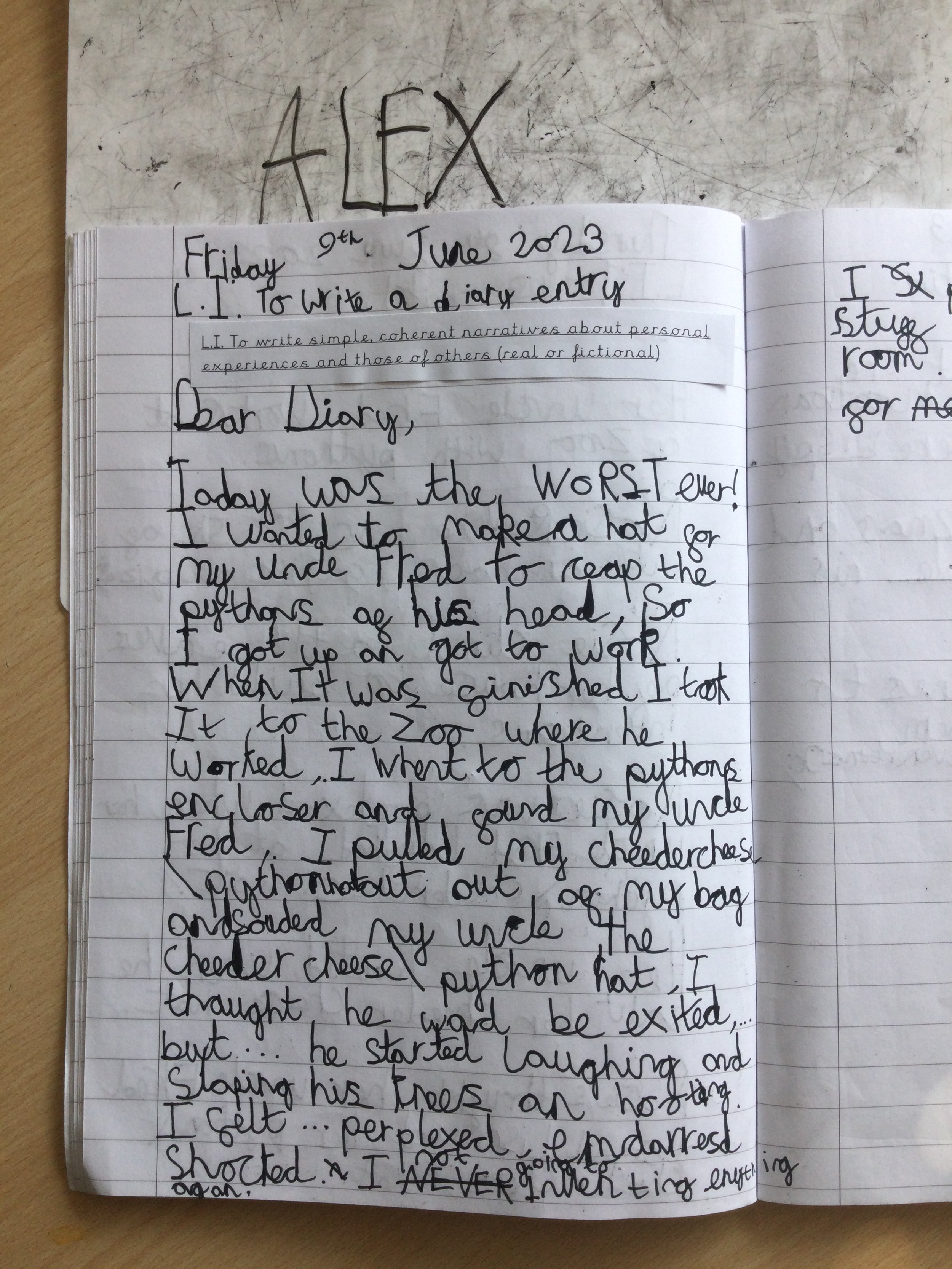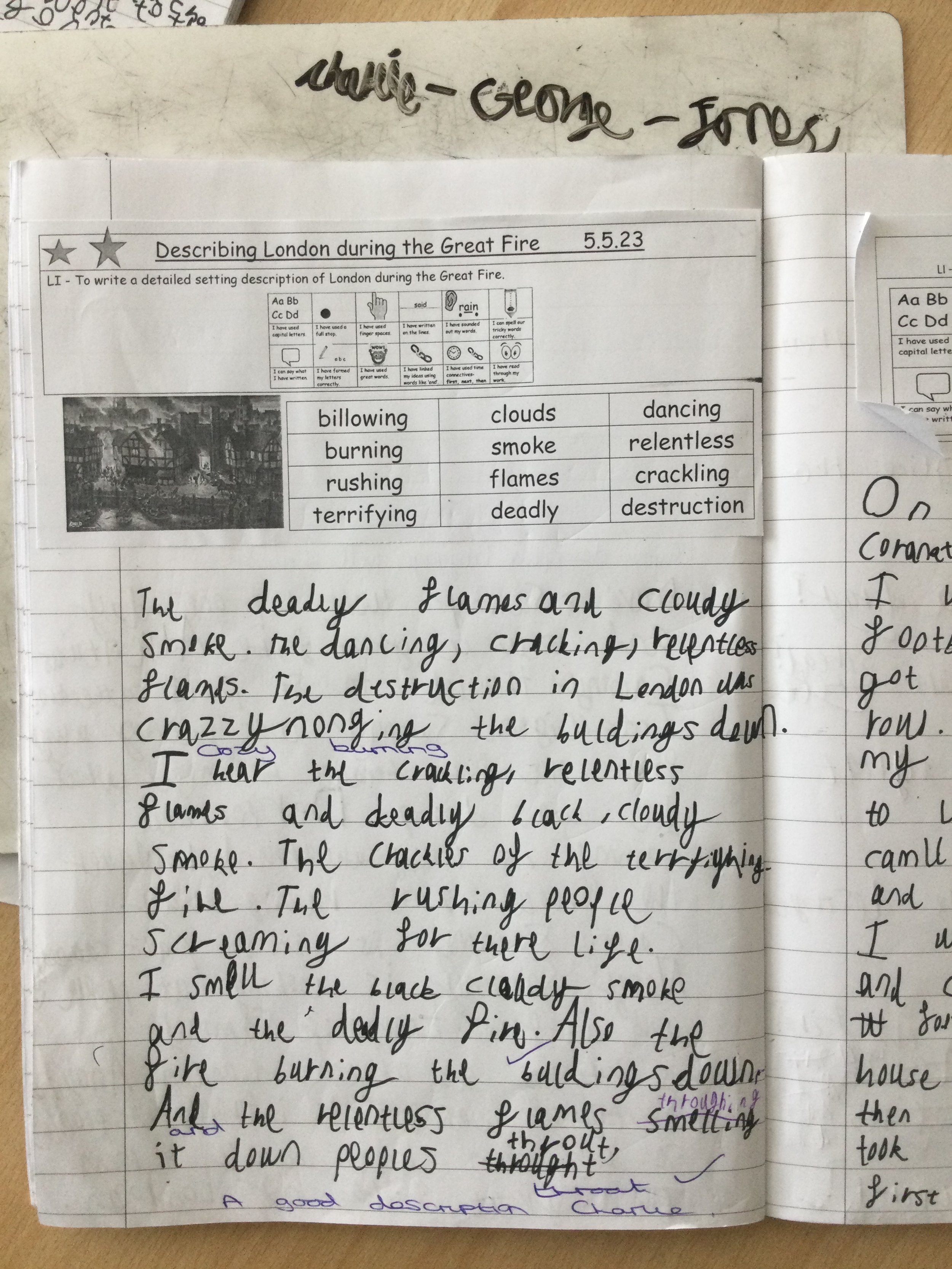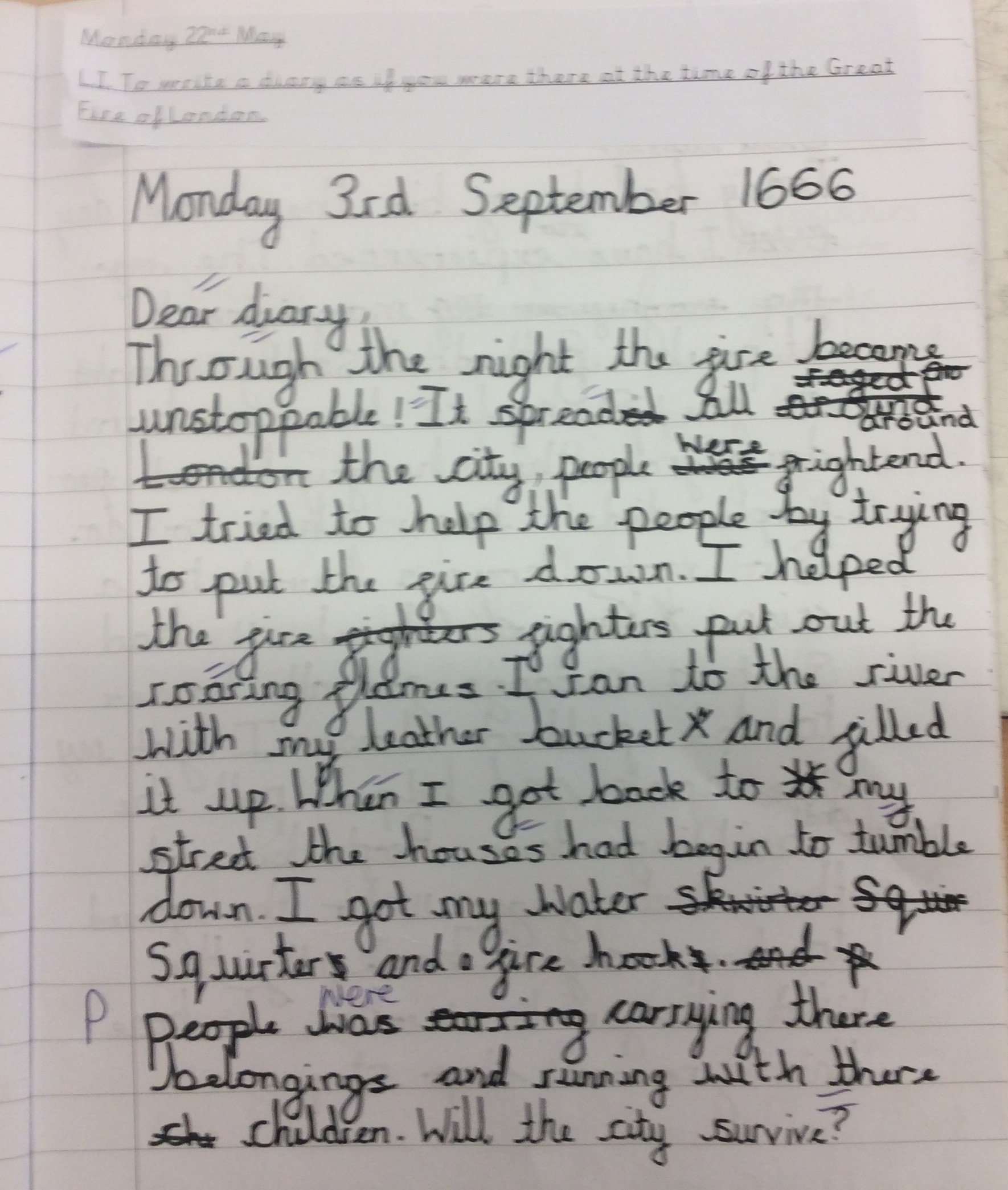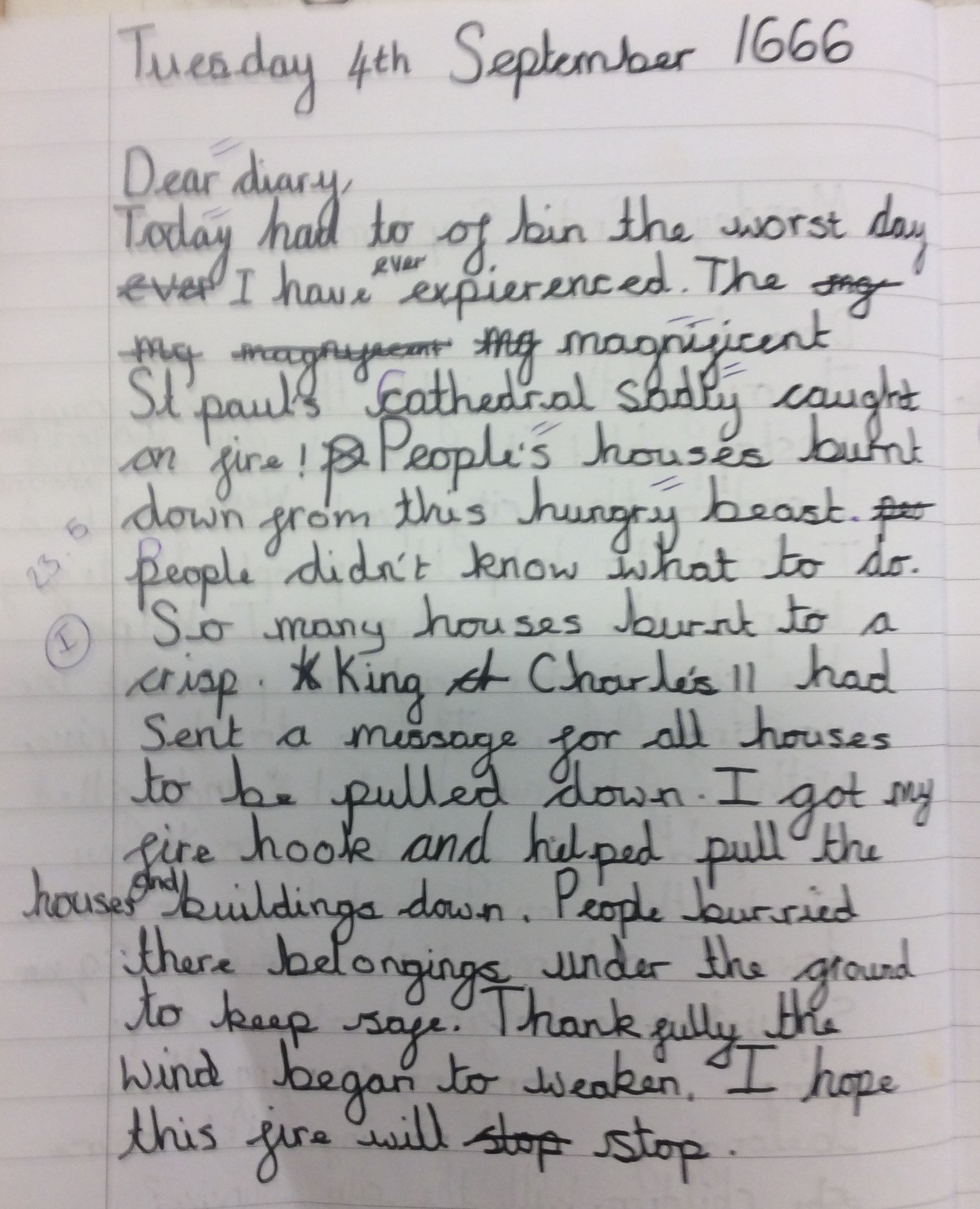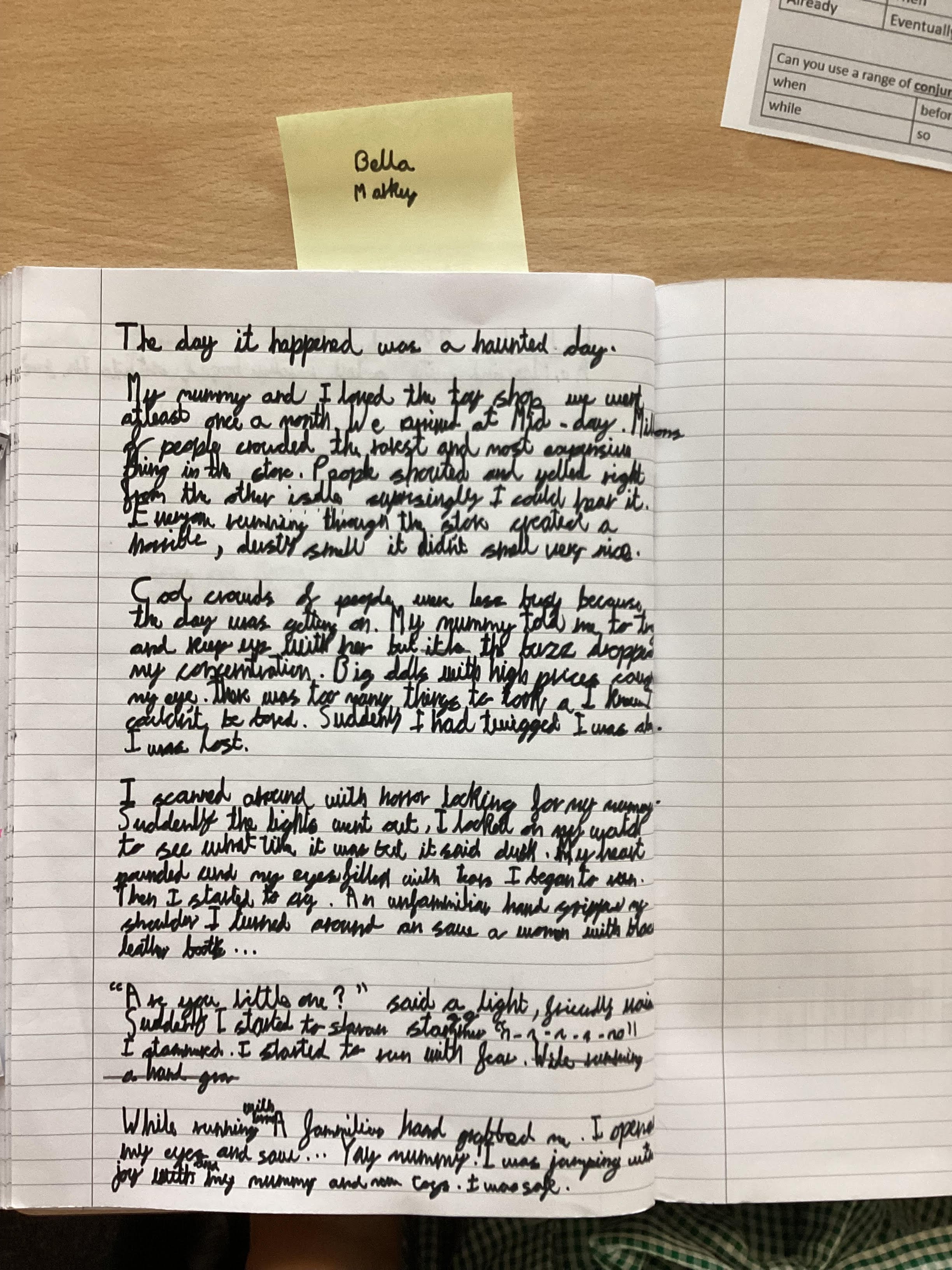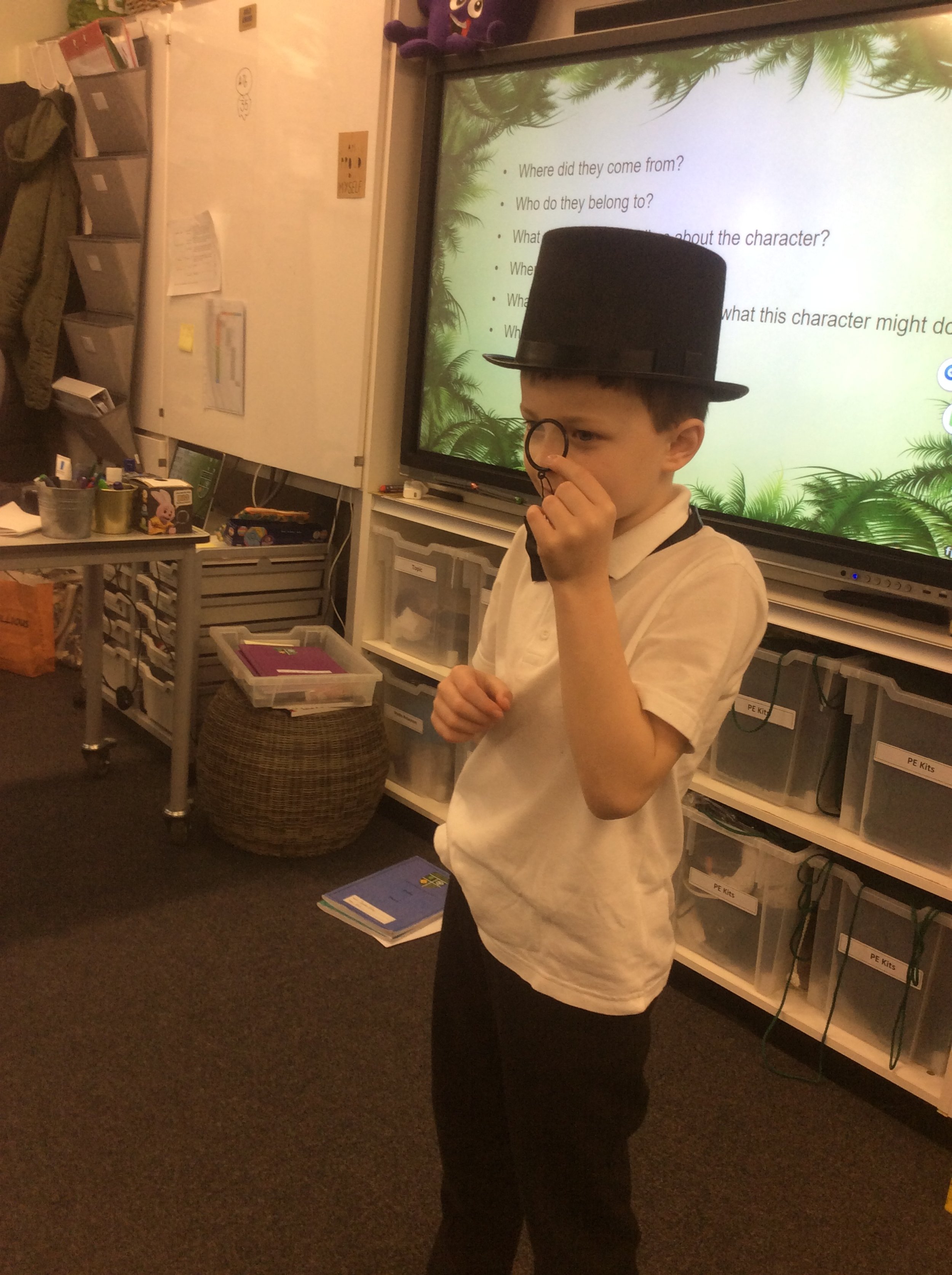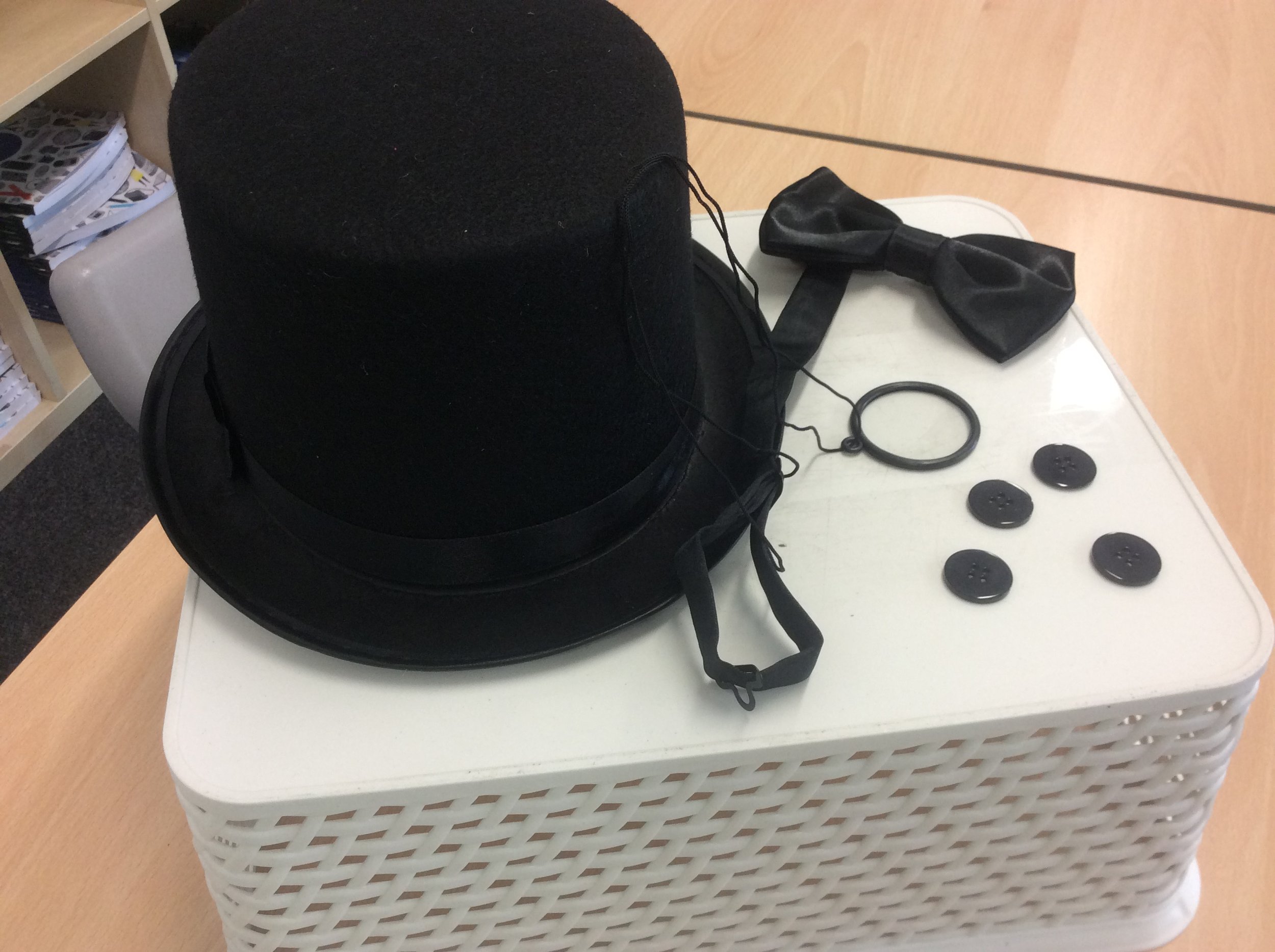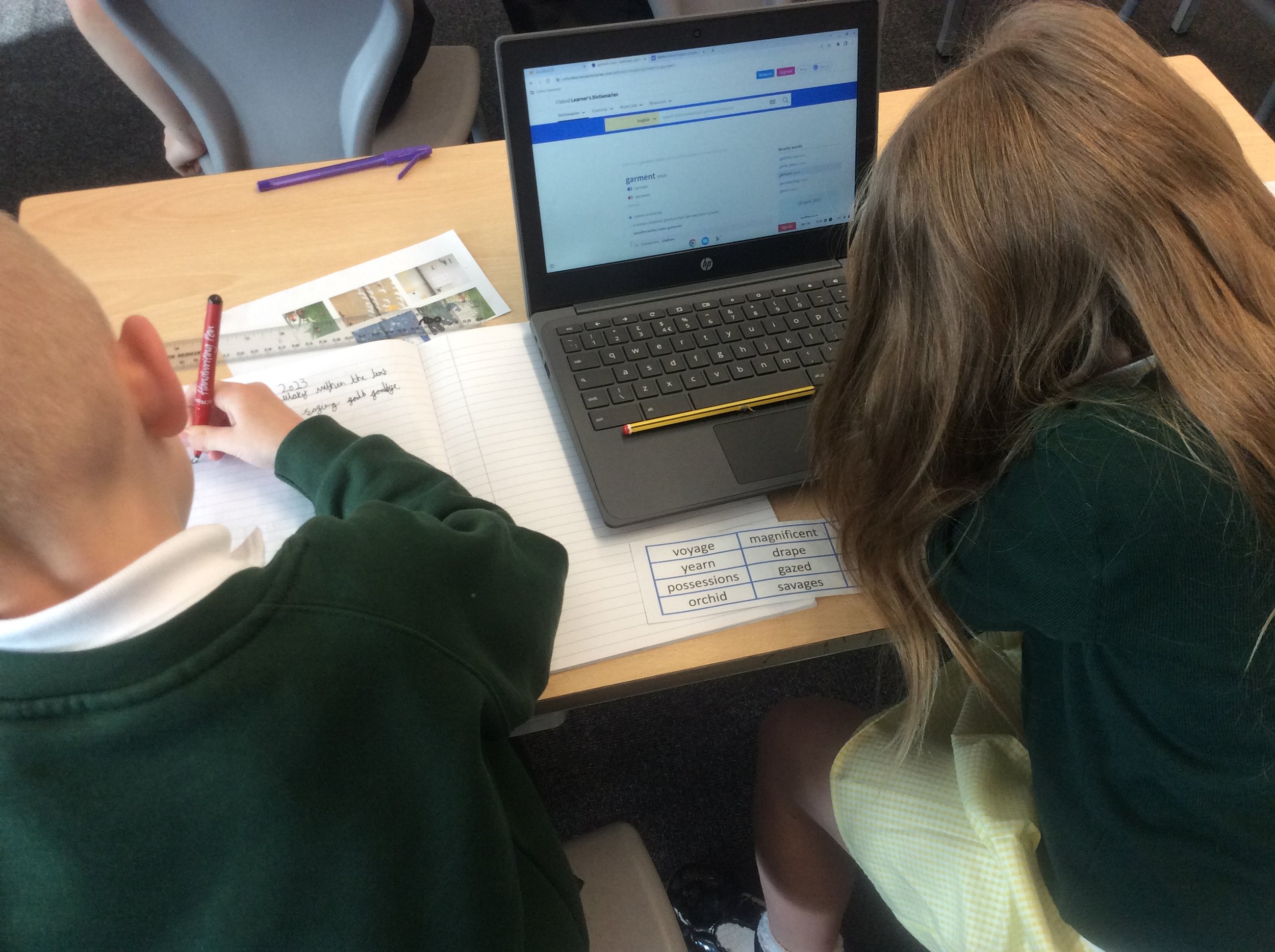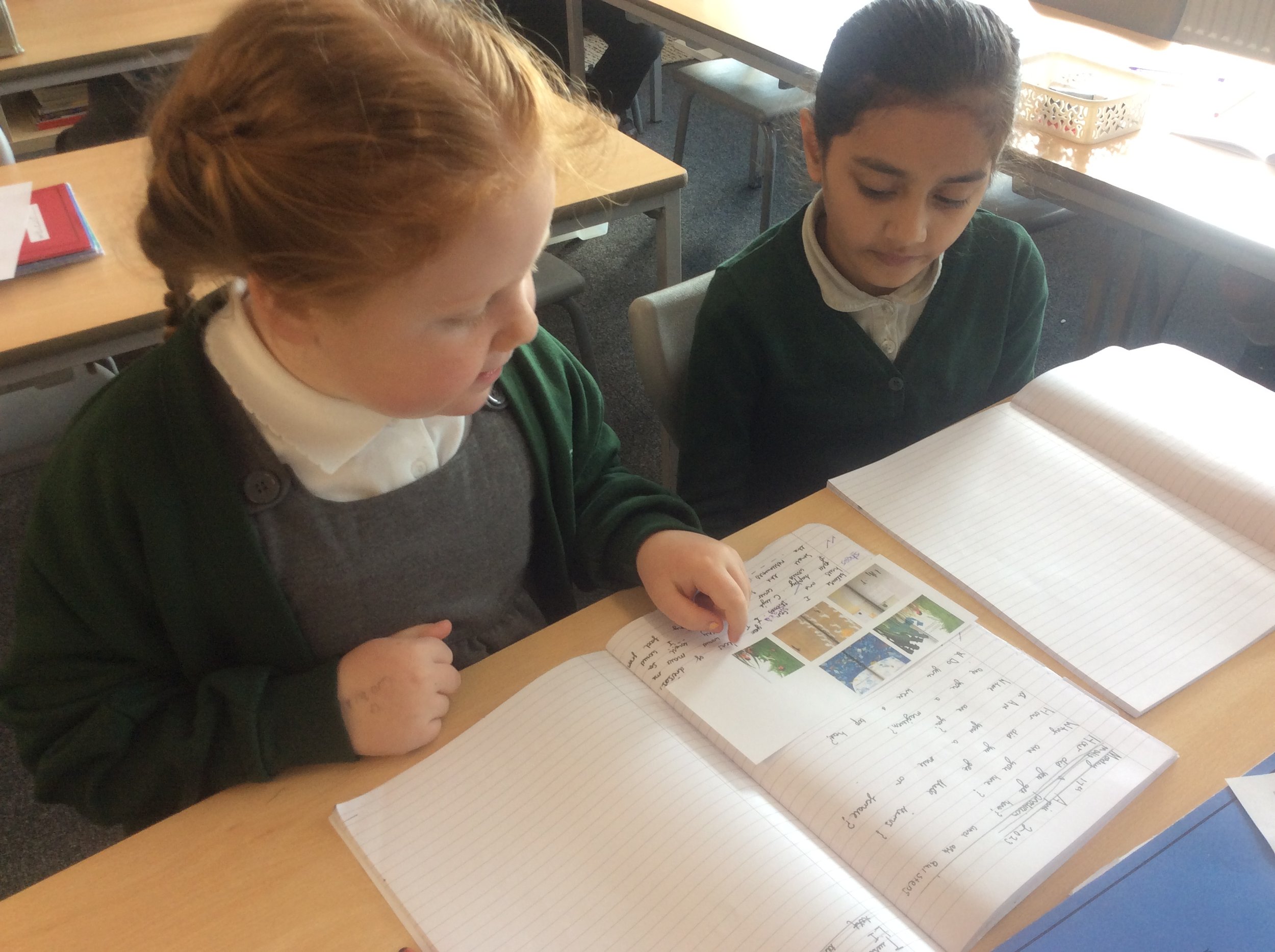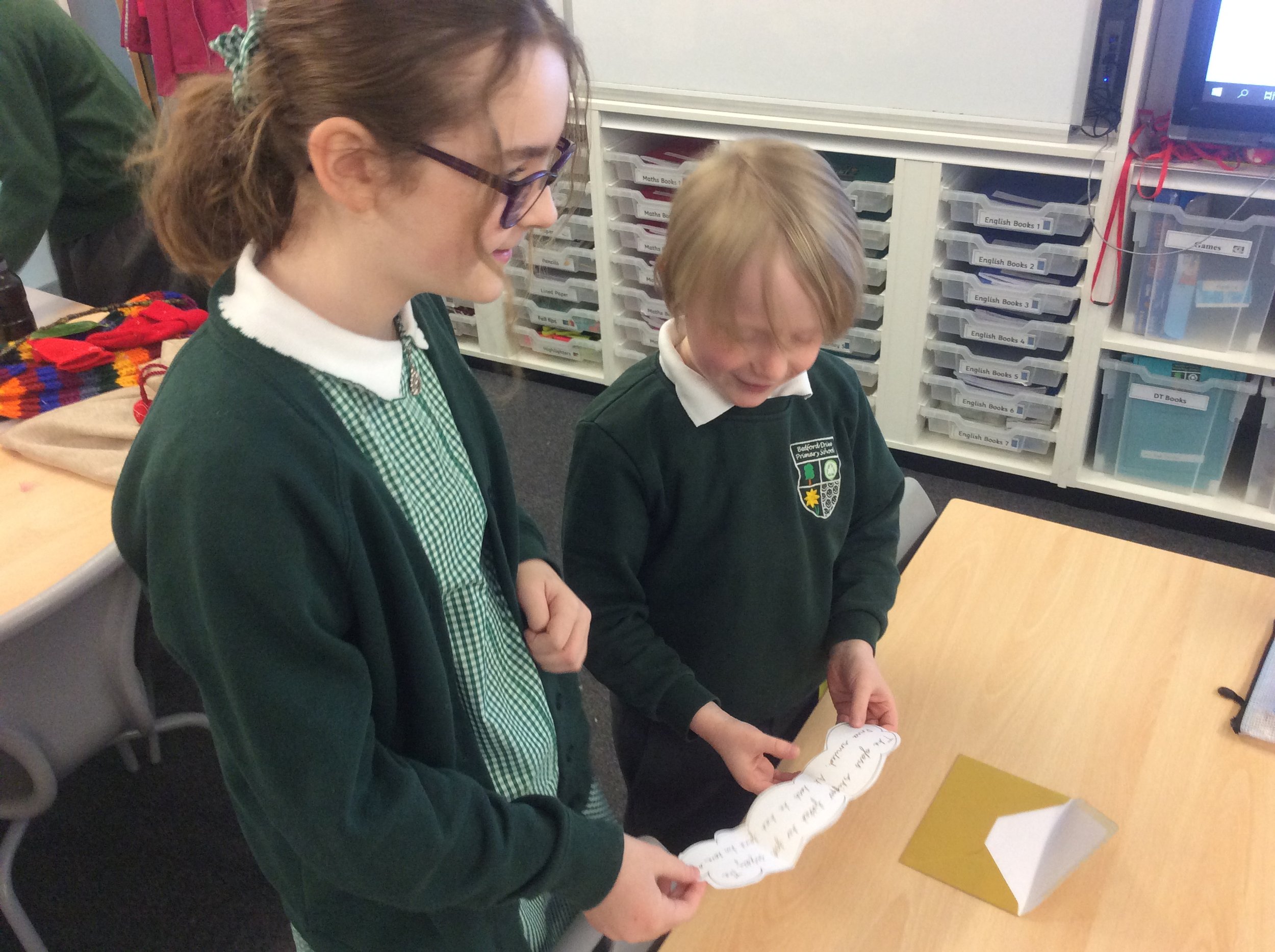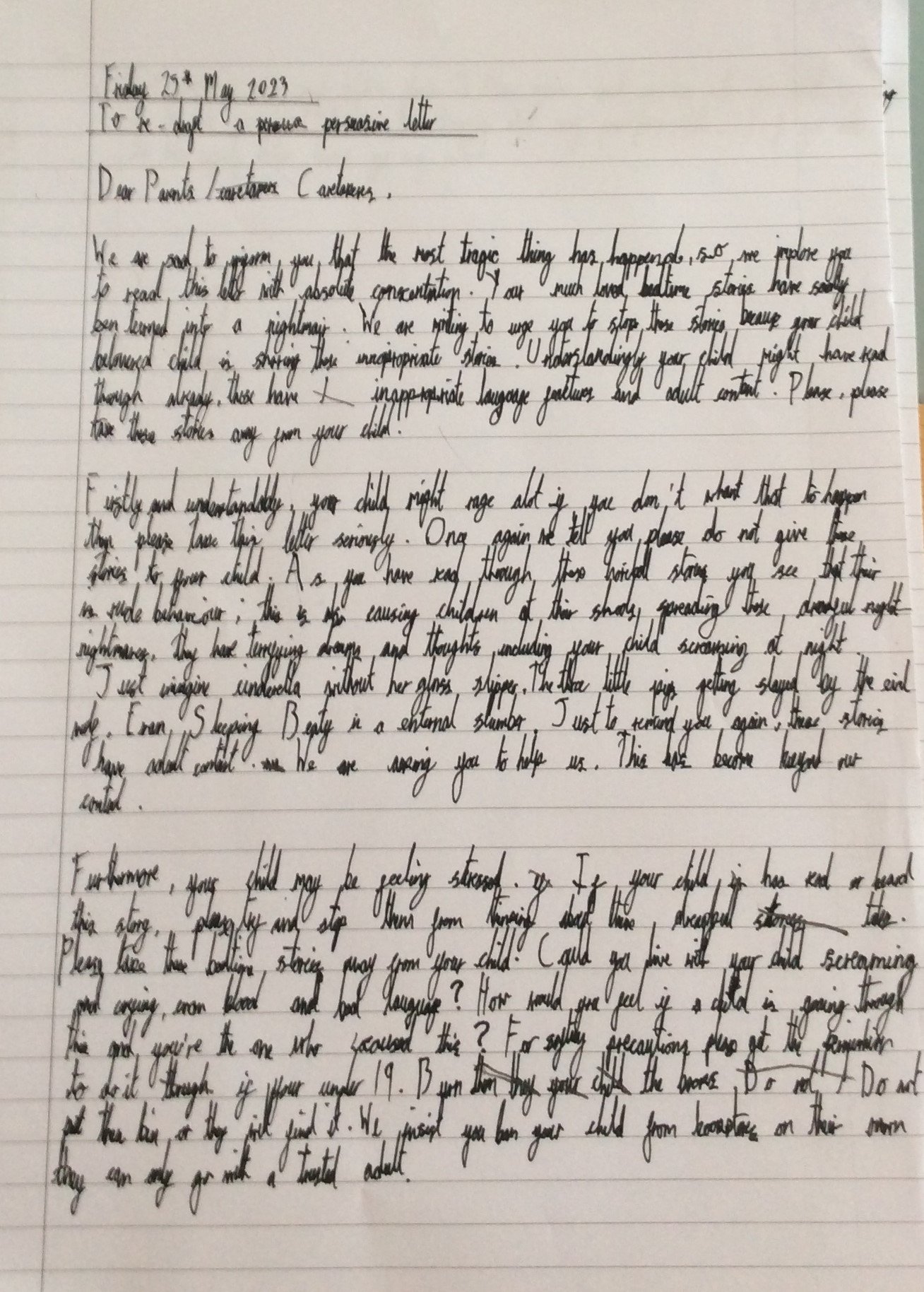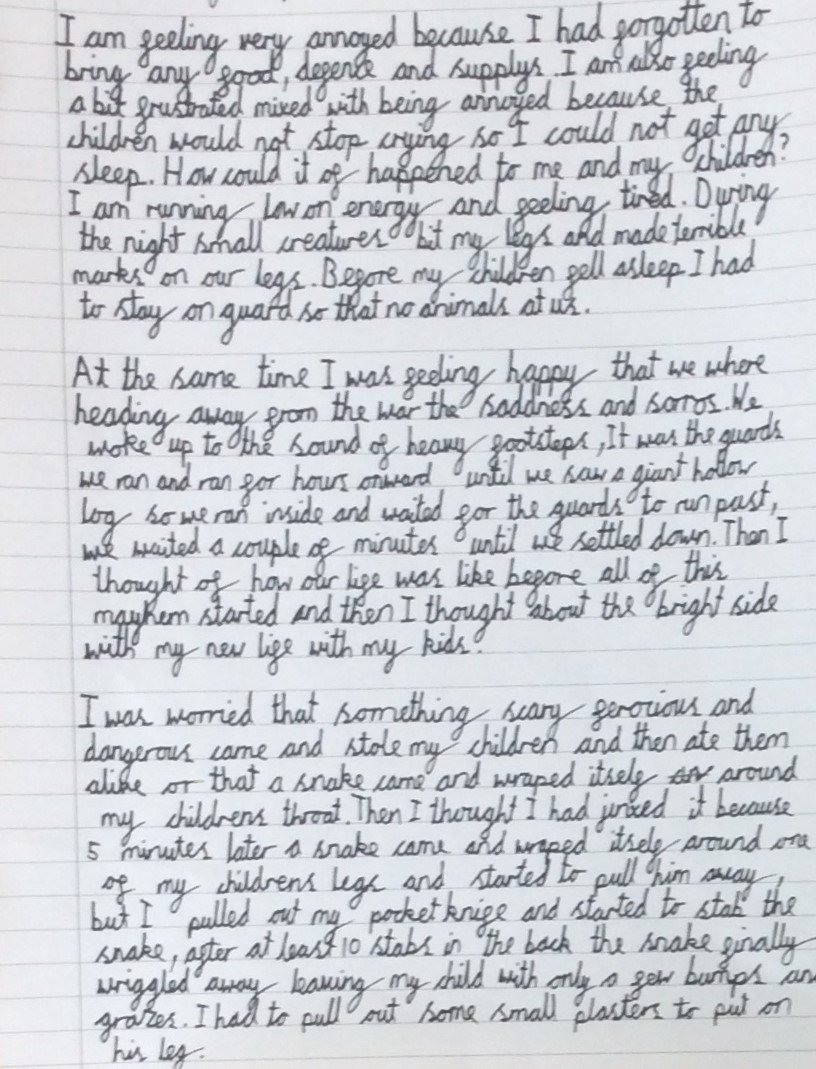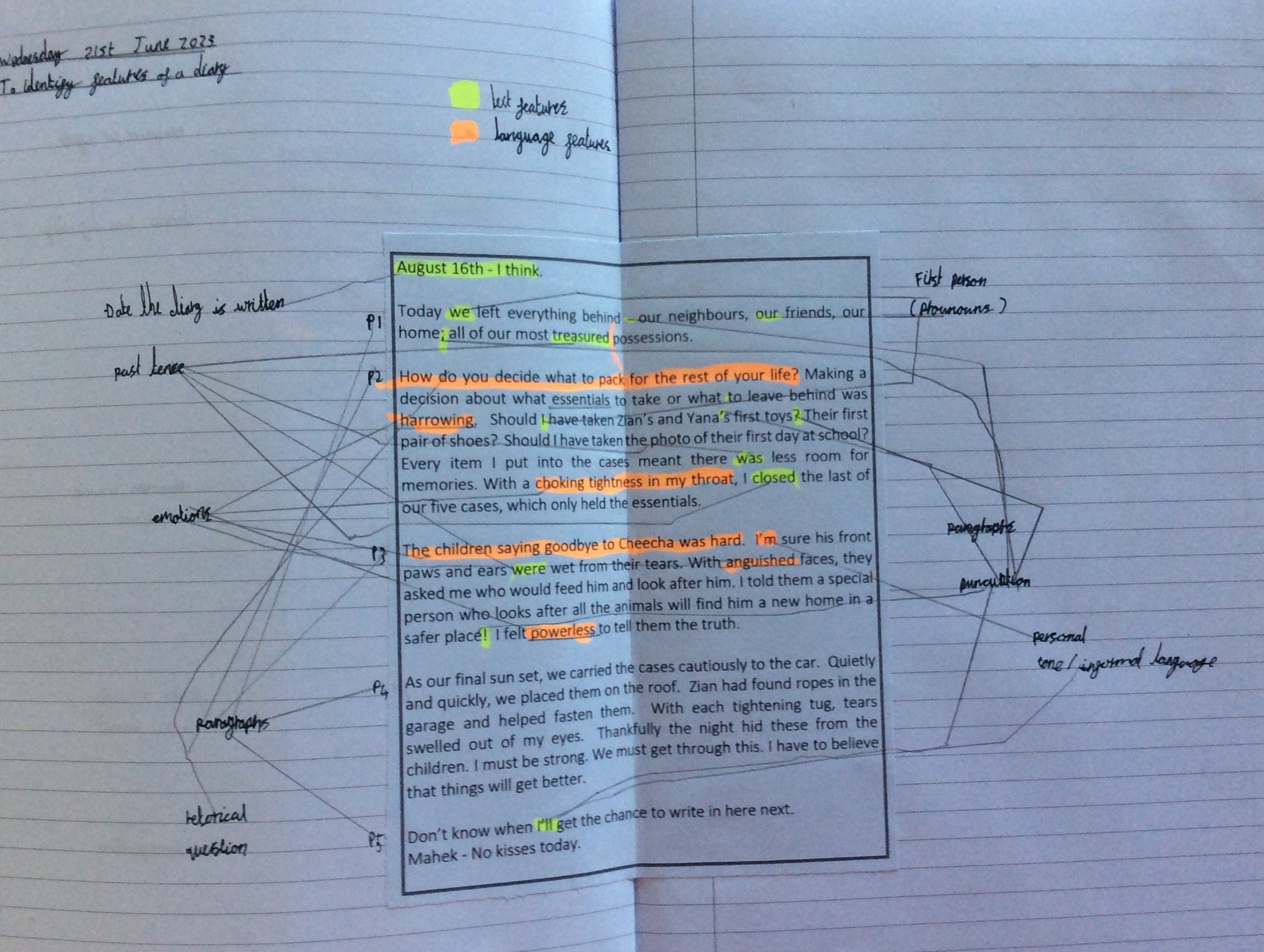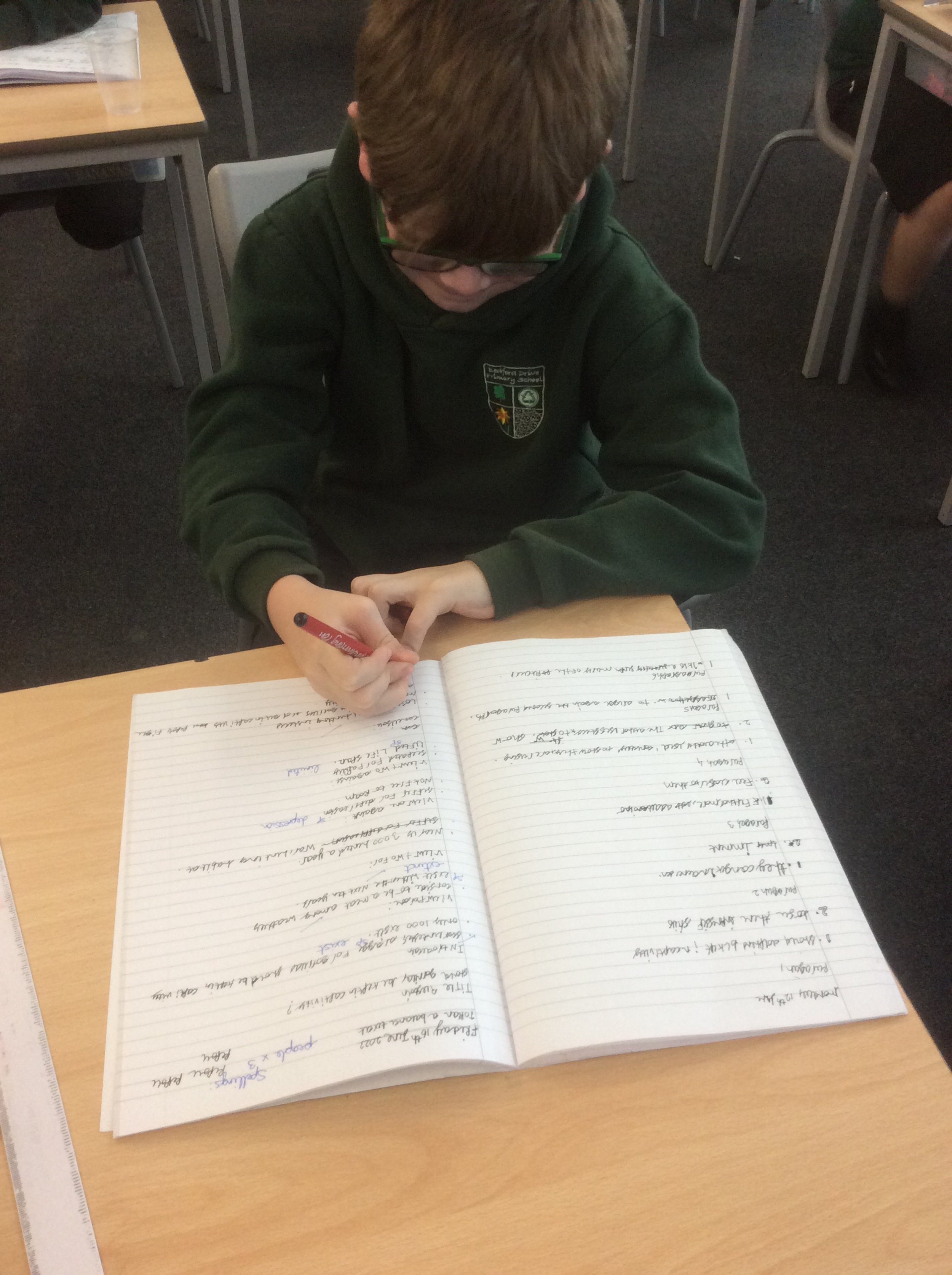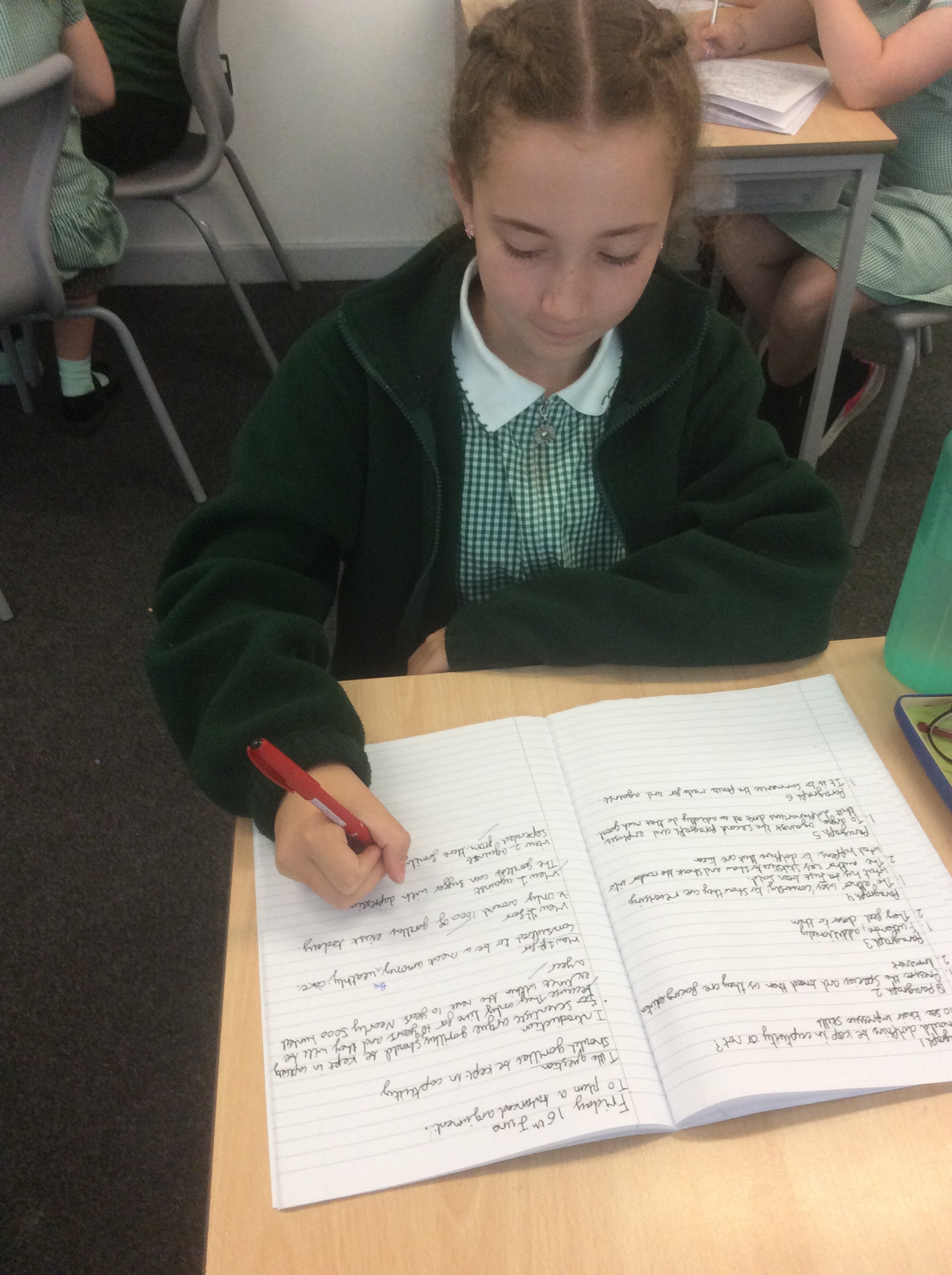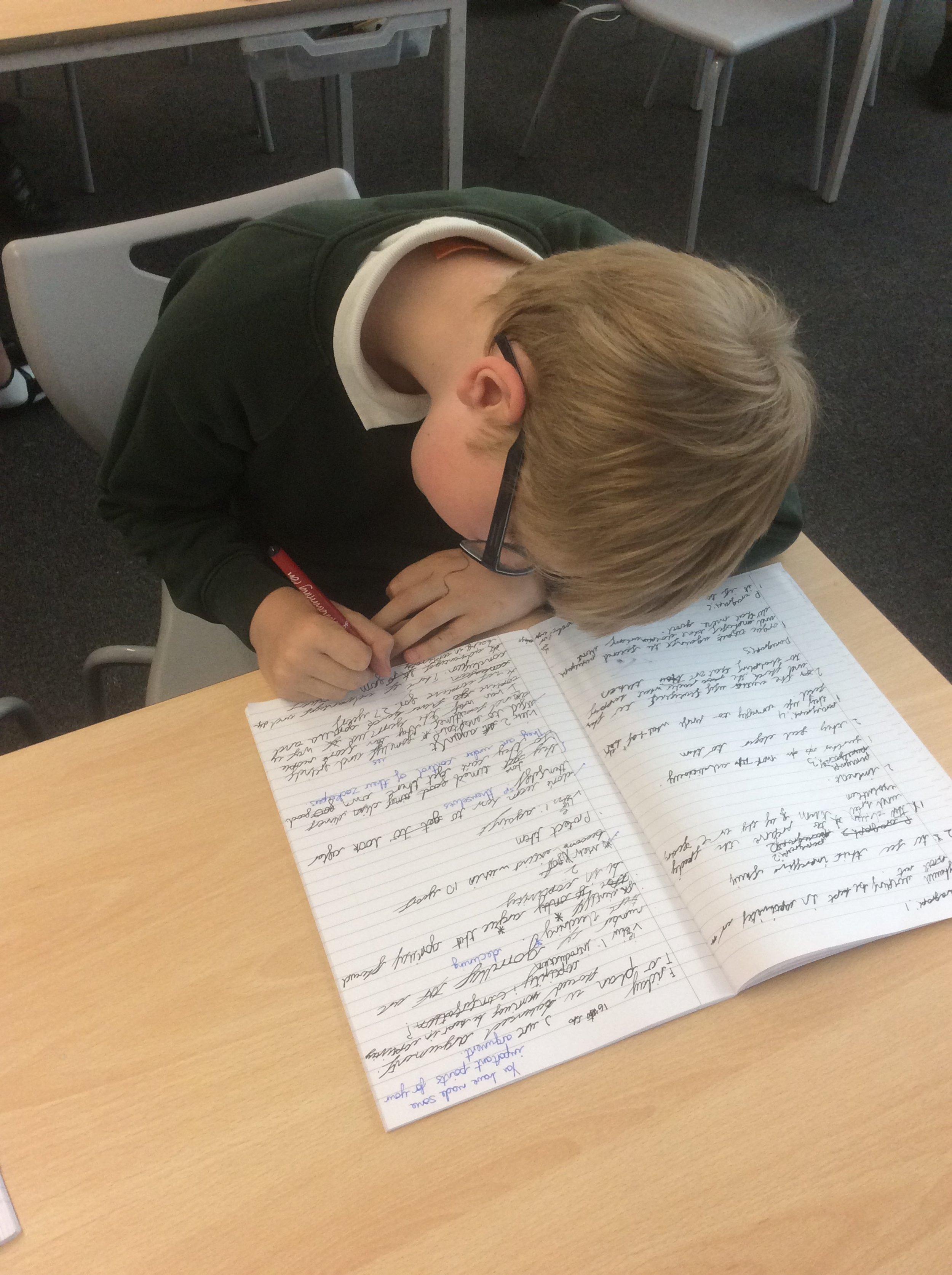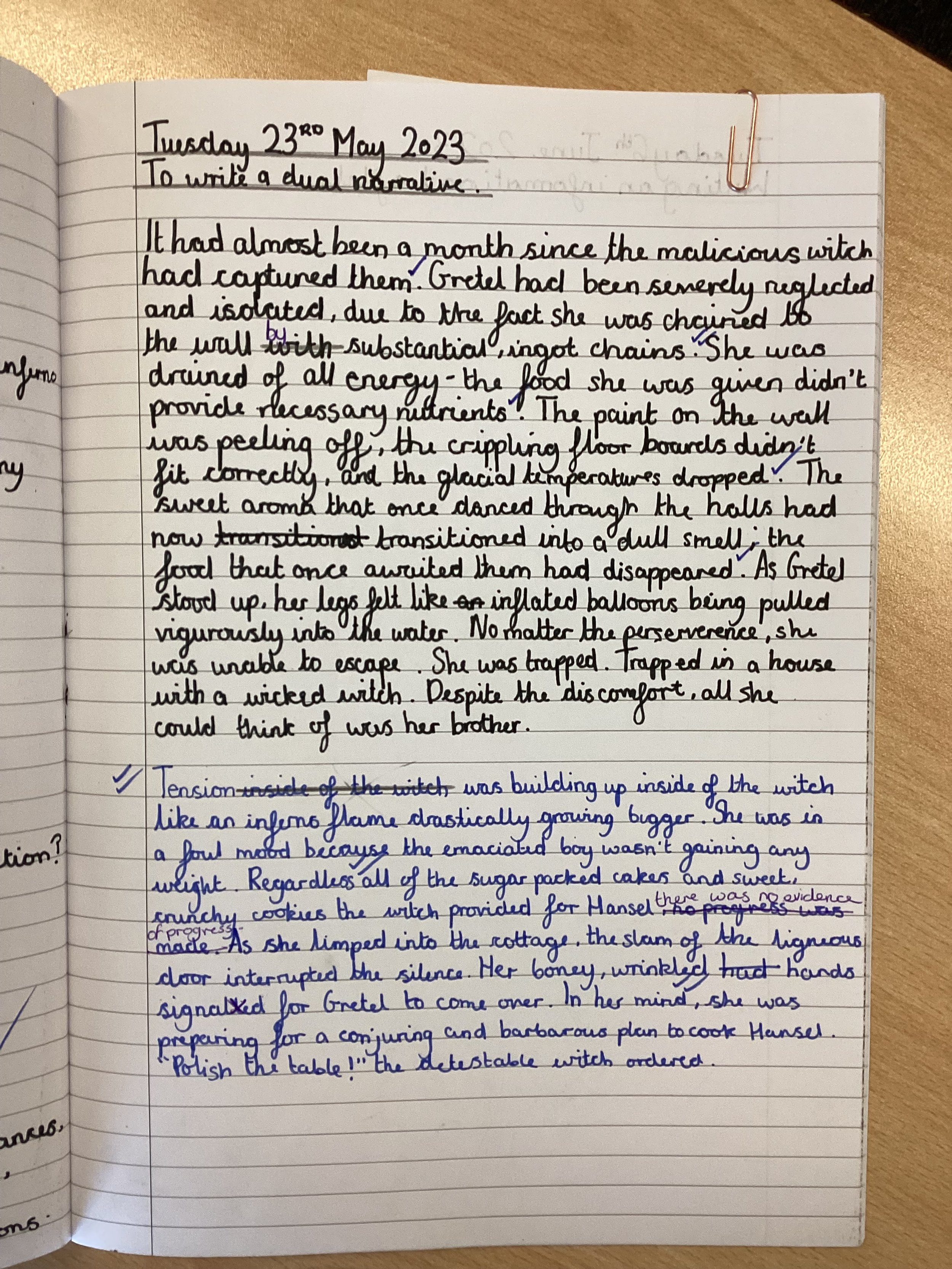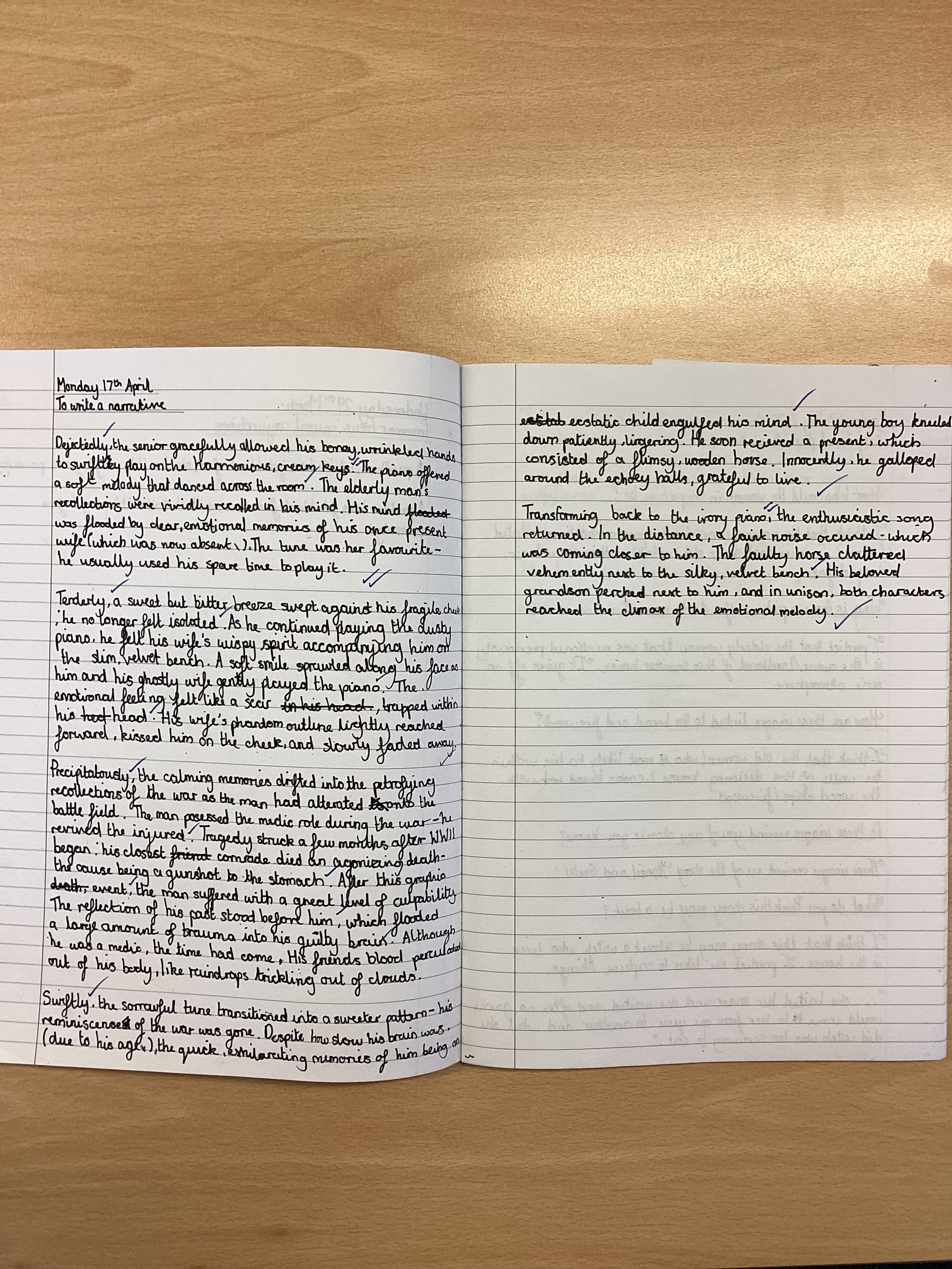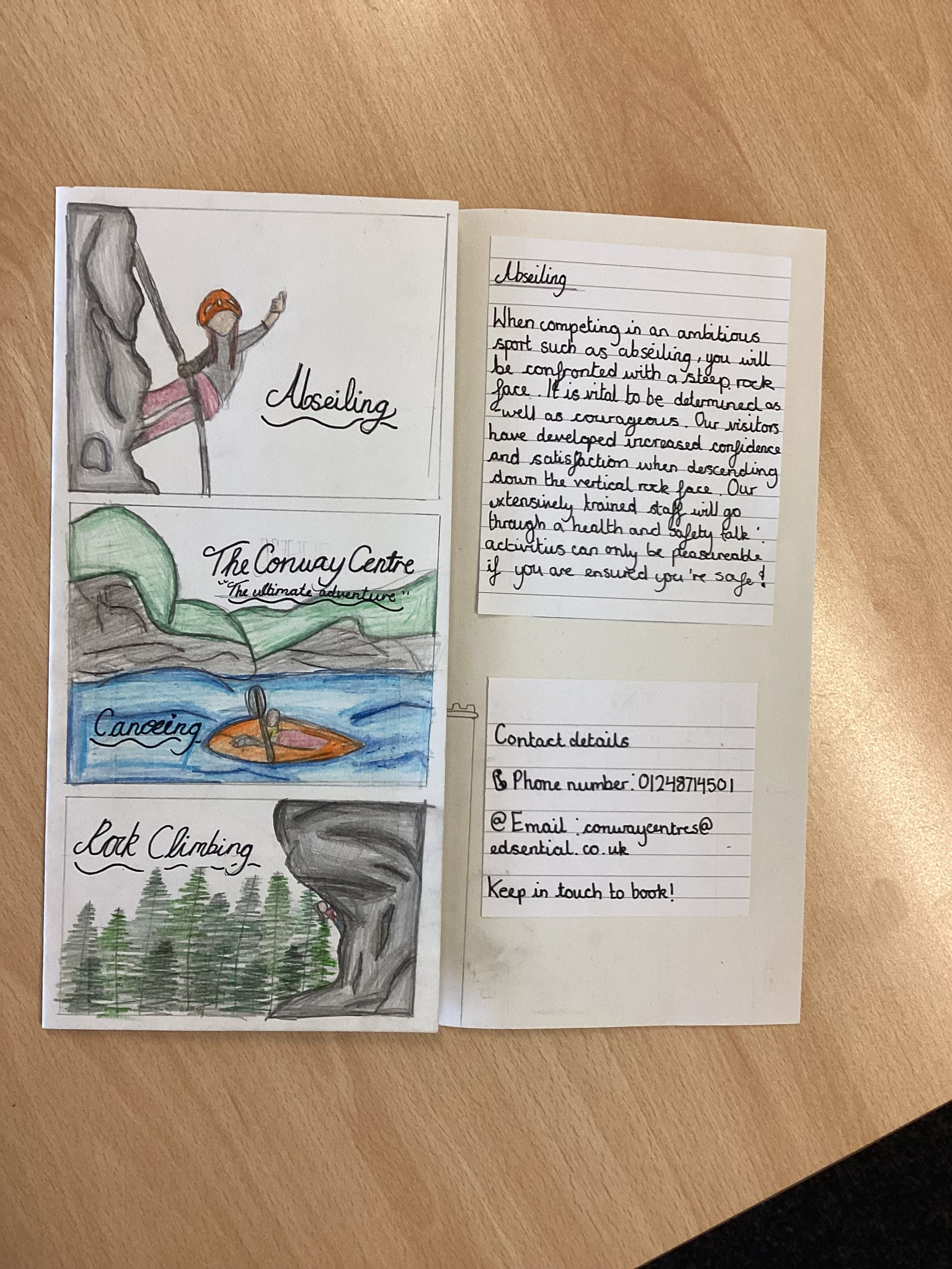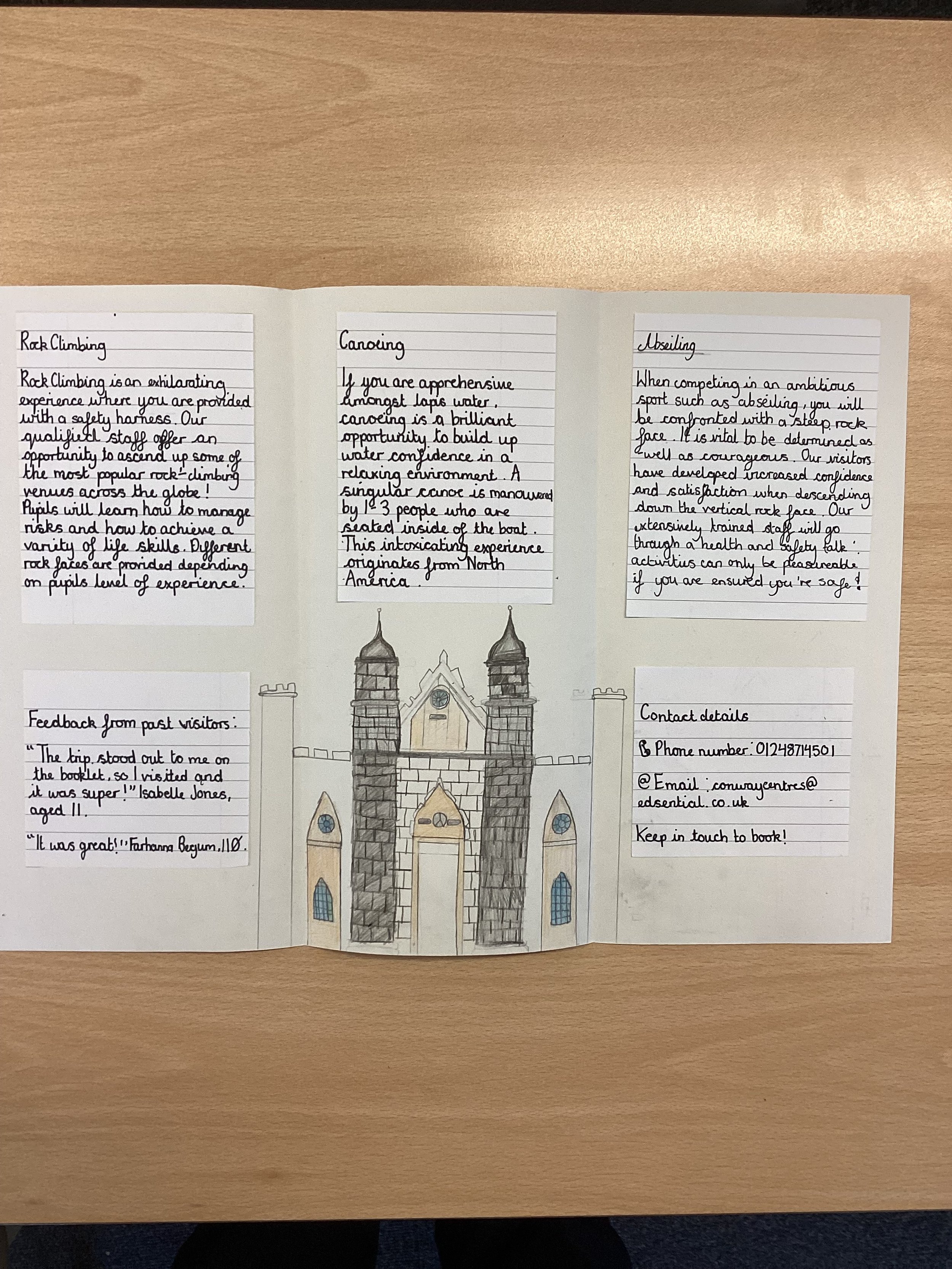English at Bedford Drive Primary School
“The more that you read, the more things you will know. The more that you learn, the more places you will go.”
The school follows the National Curriculum for English as defined by the Department for Education. The National Curriculum for English aims to ensure that all pupils:
read easily, fluently and with good understanding
develop the habit of reading widely and often, for both pleasure and information
acquire a wide vocabulary, an understanding of grammar and knowledge of linguistic conventions for reading, writing and spoken language
appreciate our rich and varied literary heritage
write clearly, accurately and coherently, adapting their language and style in and for a range of contexts, purposes and audiences
use discussion in order to learn; they should be able to elaborate and explain clearly their understanding and ideas
are competent in the arts of speaking and listening, making formal presentations, demonstrating to others and participating in debate.
There are a number of ways that you can support your child with their learning at home and Mrs McFarlane, Subject Leader for English has prepared the following information that may be useful for you.
We would like to share our work and learning
Foundation 1
Foundation 1 enjoyed a trip to the Library and making characters from their favourite books.
Foundation 2
Reading - This term Reception have been learning about re-telling stories and narratives and the importance of having and using a rich, ambitious vocabulary.
Phonics - We are working within phase 4 of our phonics scheme Little Wandle. We are focussing on much longer words now and are using the strategy of chunking words up.
Writing - We are continuing to write sentences using capital letters, fingers spaces and full stops independently. Lots of our writing has been linked to our Literacy counts units: The Seaside and The Extraordinary Gardener.
Handwriting - We have had a focus on letter formation this half term and are making sure we always write top to bottom and form all of our letters correctly.
Year 1
The children’s writing was based on a book called The Secret of Black Rock this term. They really enjoyed the story and then produced their own story based upon it. They used images from the text to learn about nouns and adjectives and learnt some super new vocabulary, which they then used in their own writing. Finally, they went on to learn about postcards and eventually wrote their own from a character in the story. We saw some excellent writing this term.
Year 2
We have enjoyed reading some new texts this term. When reading ‘Rosie Revere Engineer’ they enjoyed thinking like engineers and analysed an explanation text then planned and wrote their own information text about their magnificent inventions. As part of our conservation work, we are looking at ‘Duffy’s lucky escape’ from this we will research Sea Turtles so that we can produce our own poetry, information text and posters.
The children also enjoyed writing about the Great Fire of London.
Year 3
During English this term in Year 3 we have used two brilliant texts to inspire our writing. Firstly we read Jemmy Button by Alix Barzelay. The story tells us about a young boy call Jemmy Button who travels to a place completely different to his own. Children used this inspiration to write their own Return narratives in the role of Jemmy Button describing their experiences and emotions they would go through. Children developed these emotions further by writing in role a letter home to a significant family member expressing their thoughts and feelings on their adventure away from home.
In Year 3 we read our second text, Into the Forest by Anthony Browne. This is a clever story that merges several familiar fairy tales into a beautifully illustrated picture book. Children have used these pictures to create their own Lost Narrative. Children used a lot of ‘Show, not tell’ to create tension in their writing building up suspense throughout.
Year 4
In English this term, Year 4 have done lots of impressive writing. We started with ‘The Lost Happy Endings’ which allowed us to develop our inference and prediction skills. We then wrote a twisted narrative and a persuasive letter to make sure that parents did not share the twisted tales with their children. Our next text was ‘The Journey’ a beautiful story about a refugee family escaping a war torn town. We used our empathy skills to understand how the characters would be feeling and then wrote a diary entry as the Mother.
Year 5
This term, Year 5 have written some excellent pieces using two highly engaging texts. We began the Summer term by exploring the book ‘The Lost Book of Adventure’ by The Unknown Adventurer. Children learnt about how to survive in different areas in the wild including skills such as setting up camp, sourcing water and foraging/ hunting for food. Their knowledge then helped them to write their own survival narrative and later on their own survival explanation text.
Year 5 have read King Kong by Anthony Browne. We carried out some role-play and had many discussions on the topic of captivity. Children used their knowledge to then write a balanced argument about keeping gorillas in captivity, coming up with some excellent and valid reason why captivity can be both positive and negative. This led in to our Conservation work where we wrote a short narrative from the viewpoint of an orang-utan in the rainforest and also carried out some letter writing.
Year 6
This term, Year 6 have produced some sophisticated and detailed pieces of writing inspired by a range of genres. Firstly, the children wrote a narrative based on the heart-warming video ‘The Piano’. Using powerful vocabulary to portray the key elements of the story, as well as including effective fronted adverbials to indicate the progression of time, the children were able to capture the true message of the story within their writing. Next, our focus turned towards writing a dual narrative based on the fairy tale of Hansel and Gretel. Through descriptive writing and sophisticated punctuation, the children produced an advanced piece of writing which portrayed both characters very different personalities.
The children produced an information leaflet about The Conway Centre. Due to their impending residential trip, this highly engaging unit of work required the children to demonstrate a range of literary skills as well as a clear structure to produce a detailed, informative and eye-catching piece of work.
At Bedford Drive Primary School, we have constructed an ambitious English curriculum, which follows the content of the EYFS statutory framework and the National Curriculum. These documents, along with our school policy, are available below.
